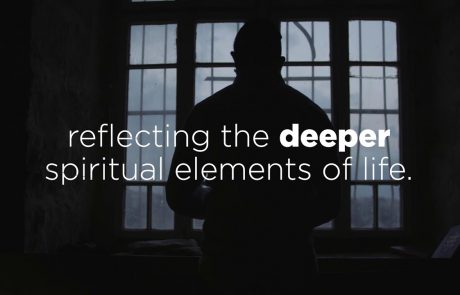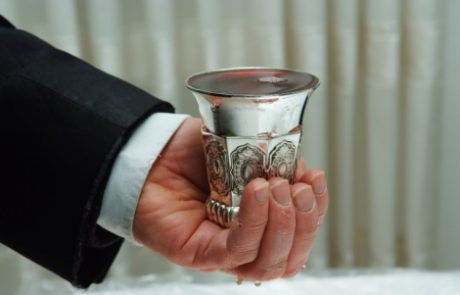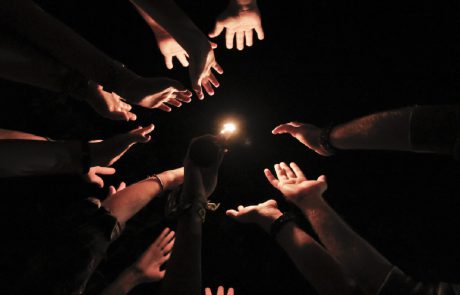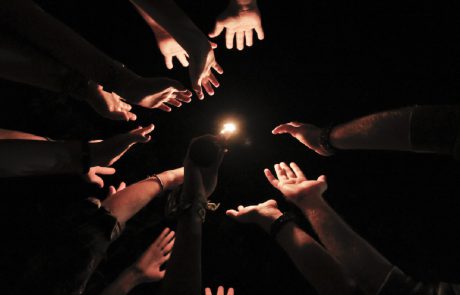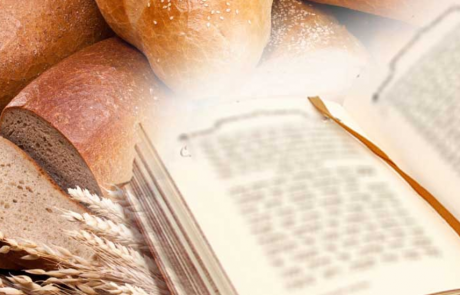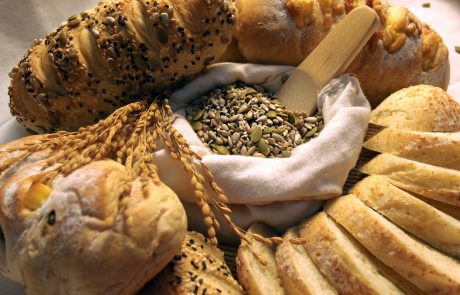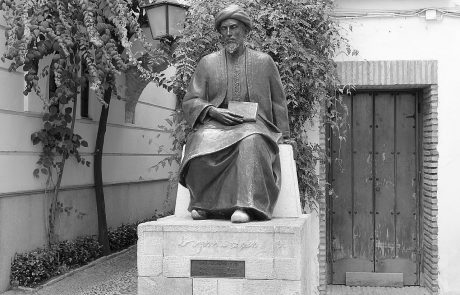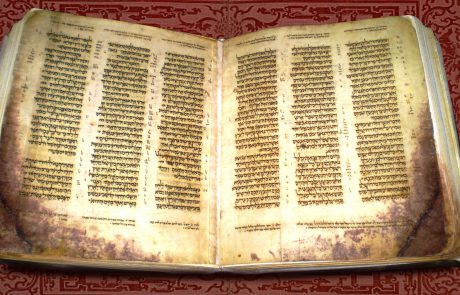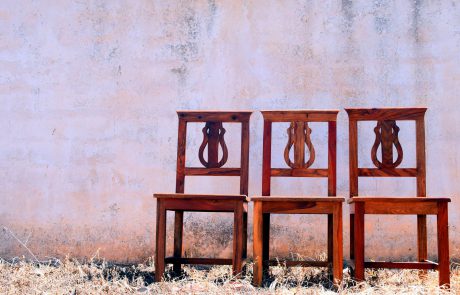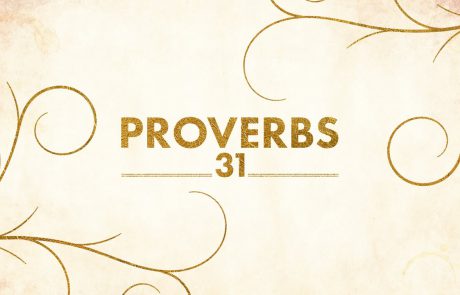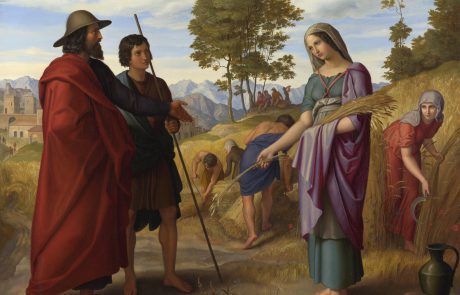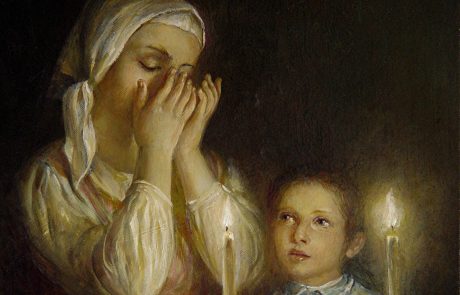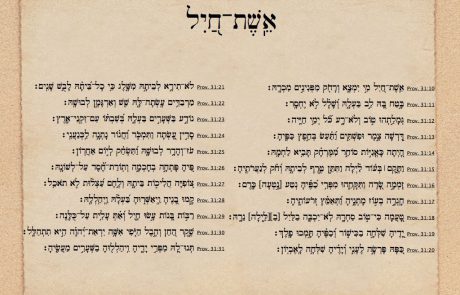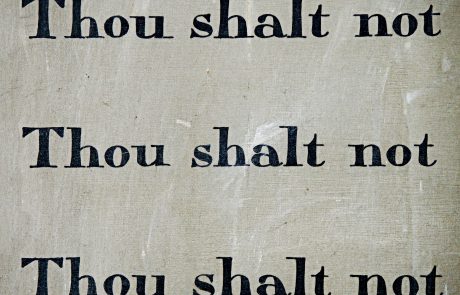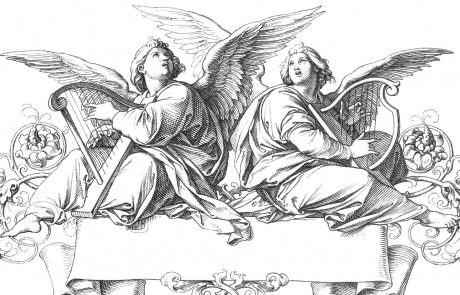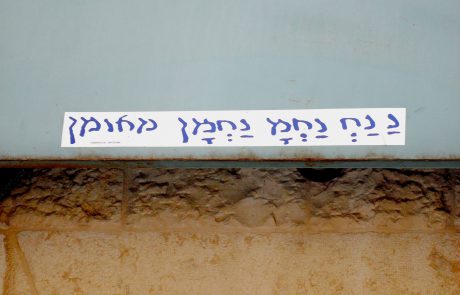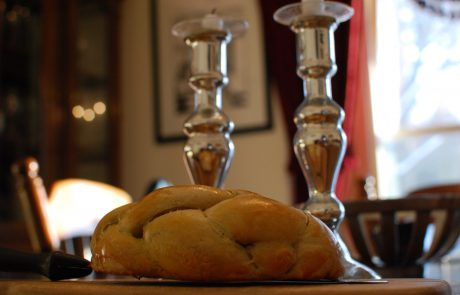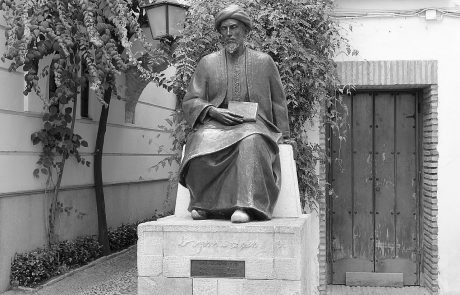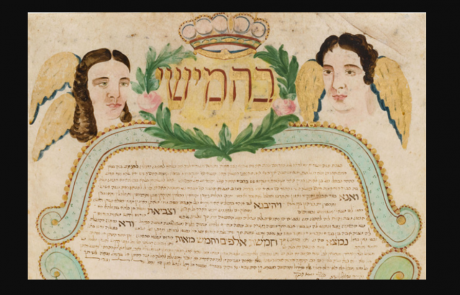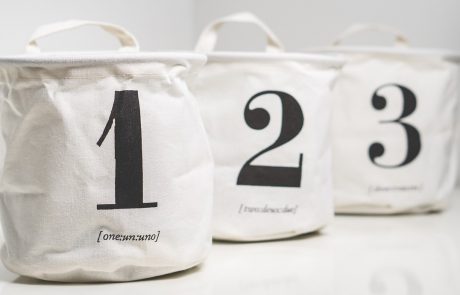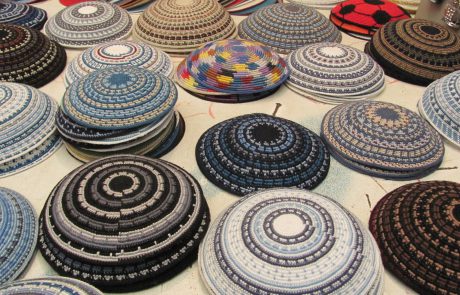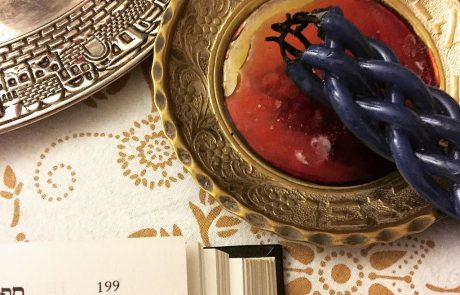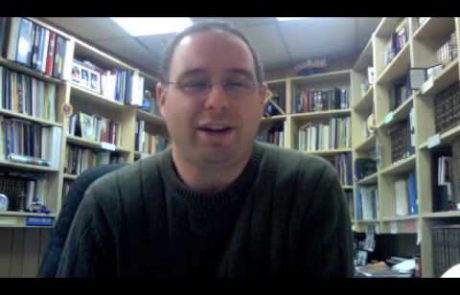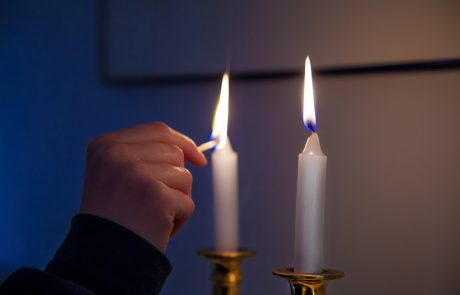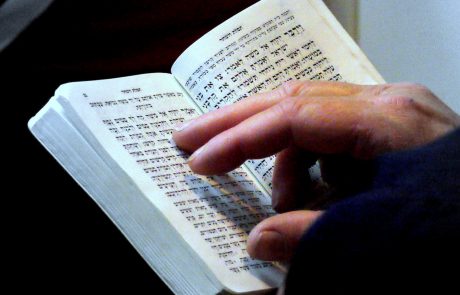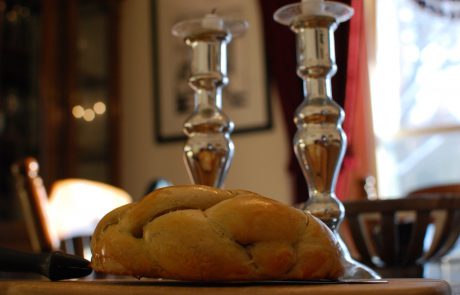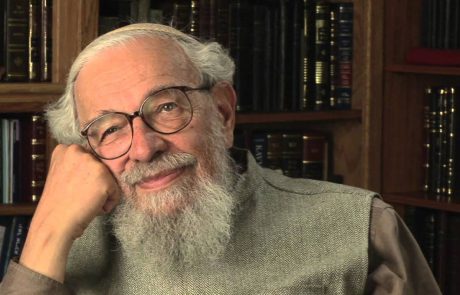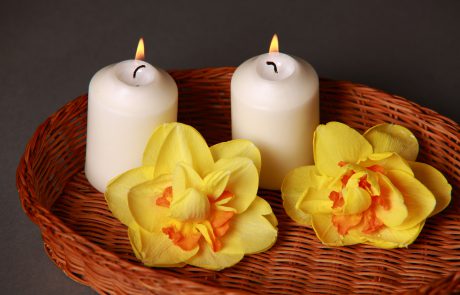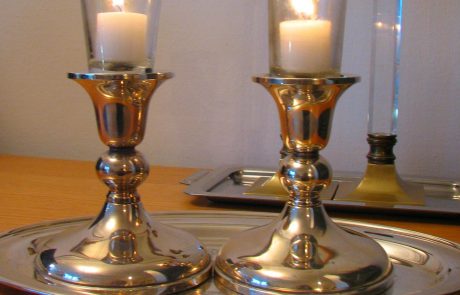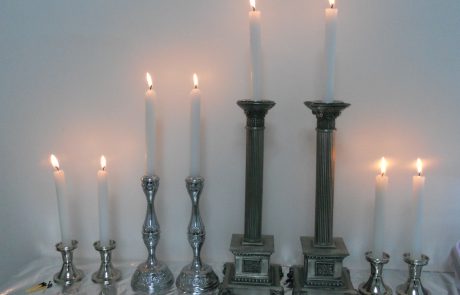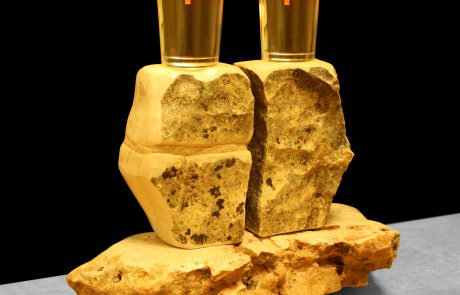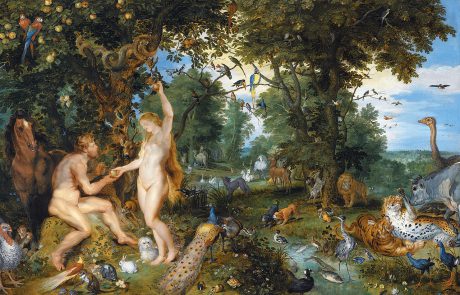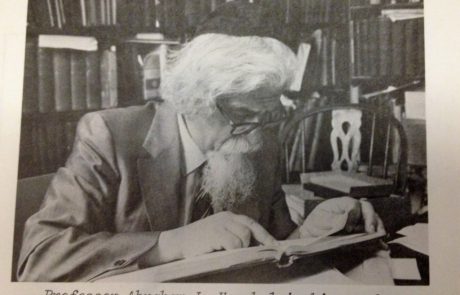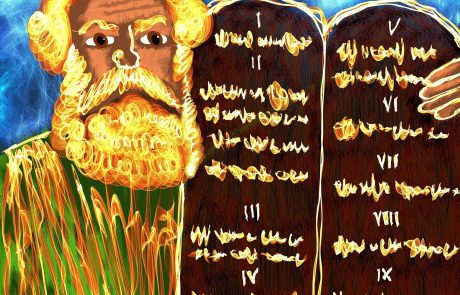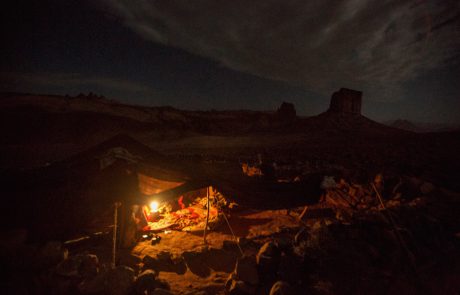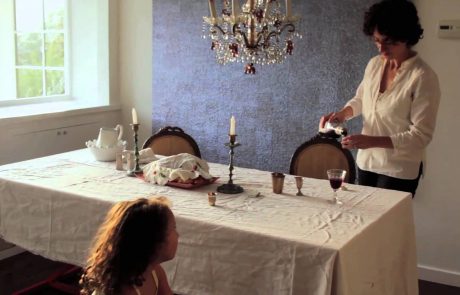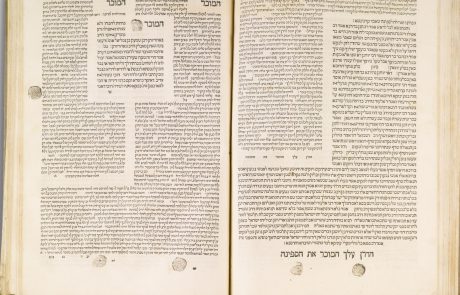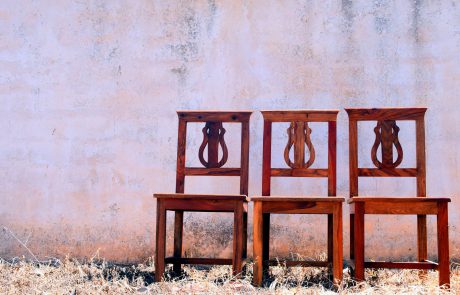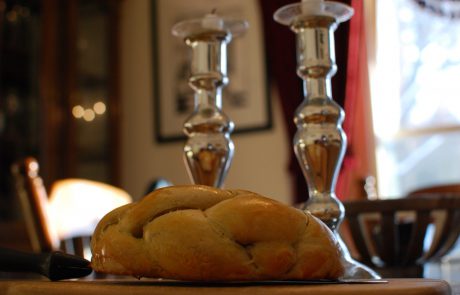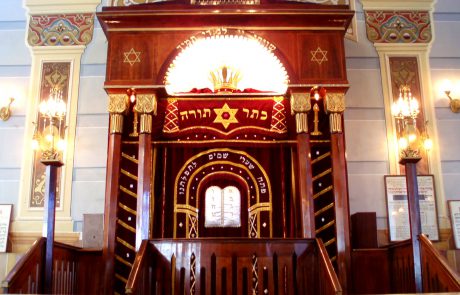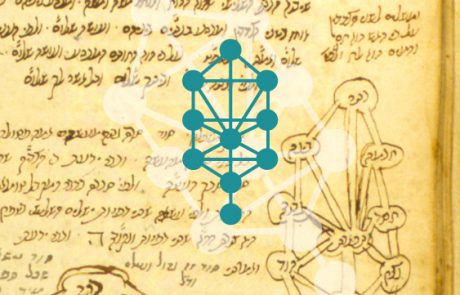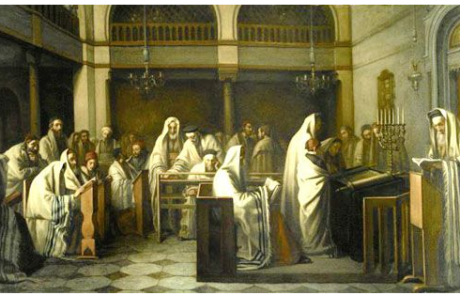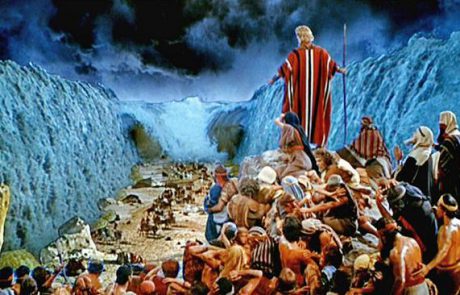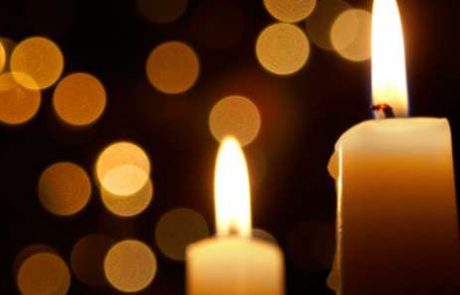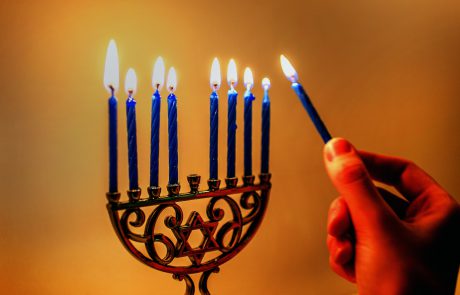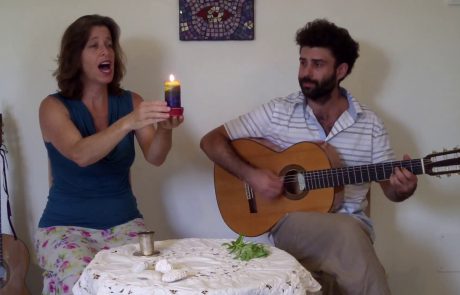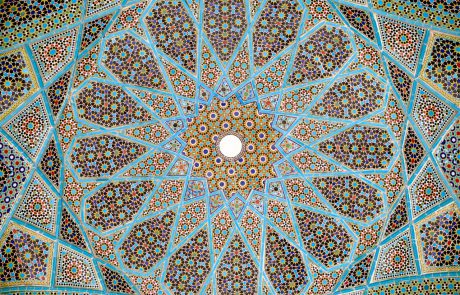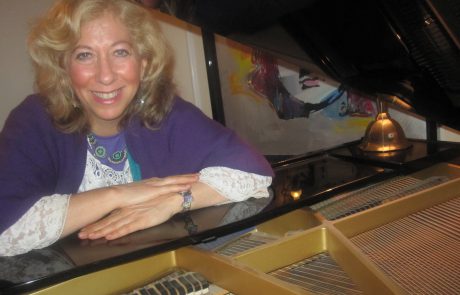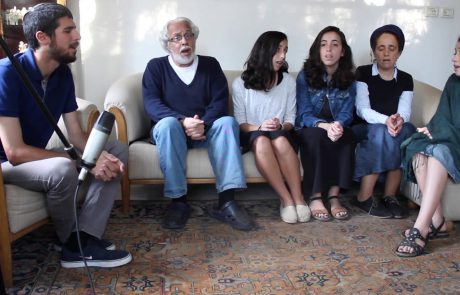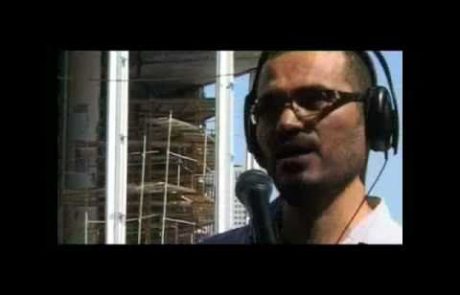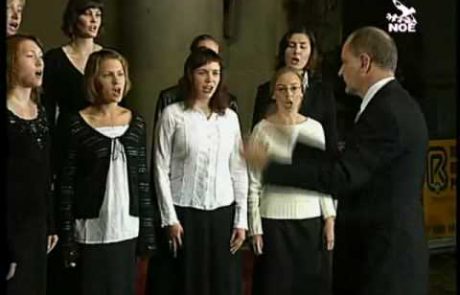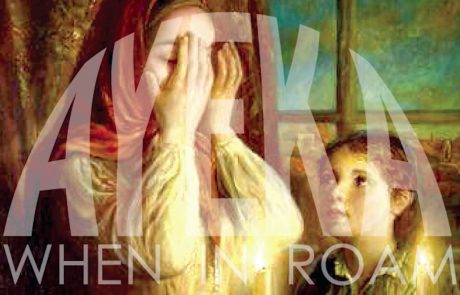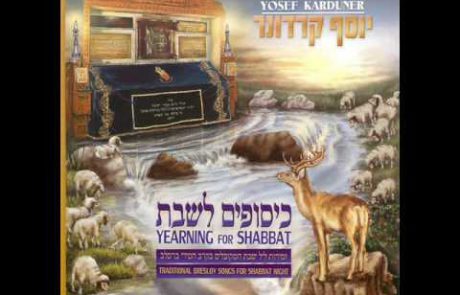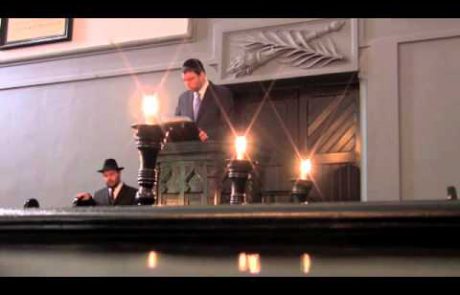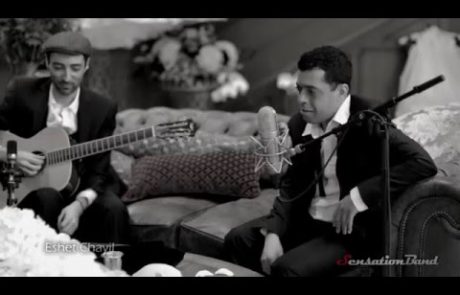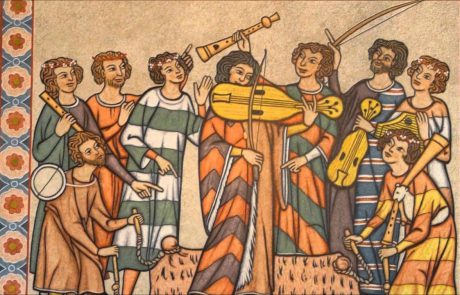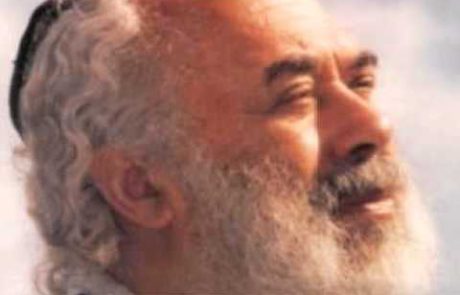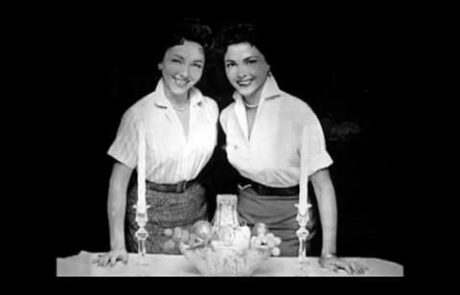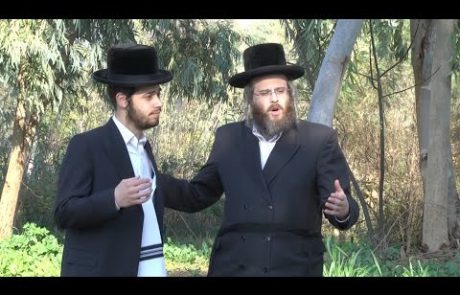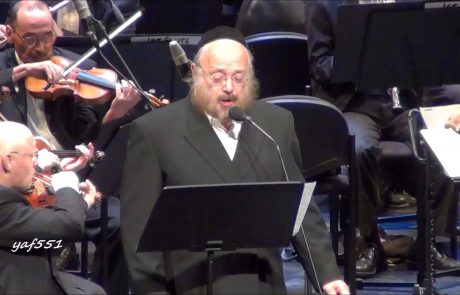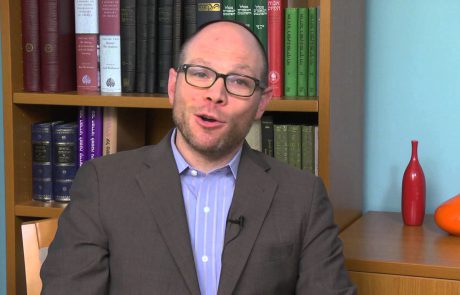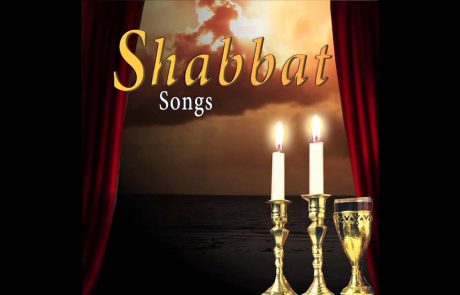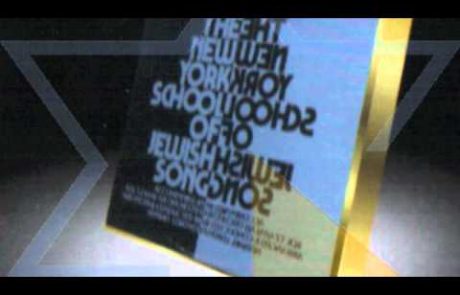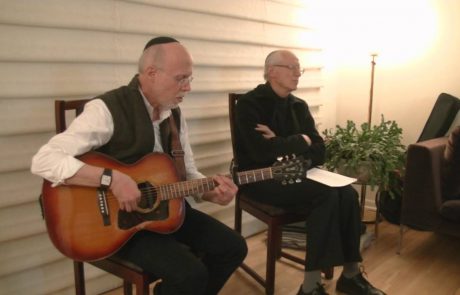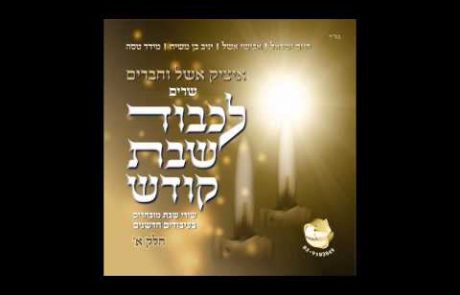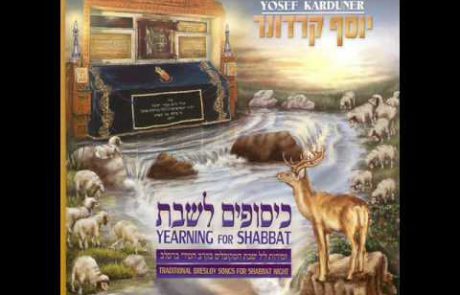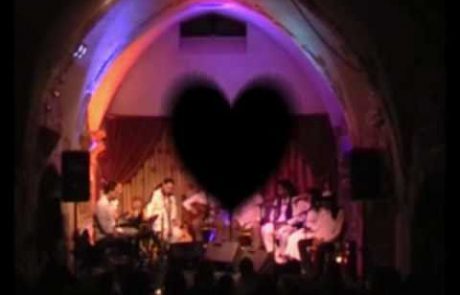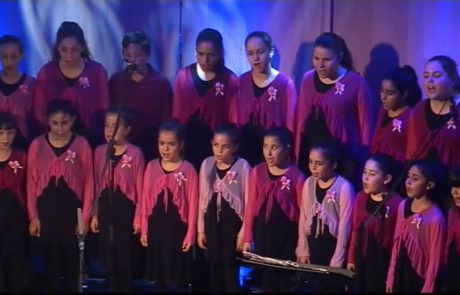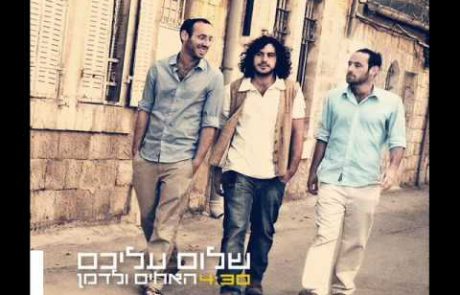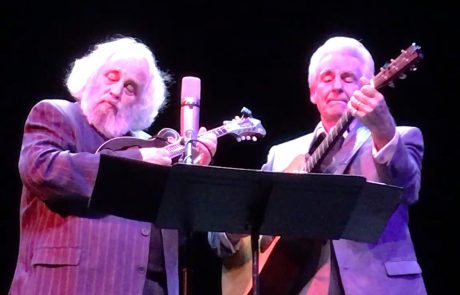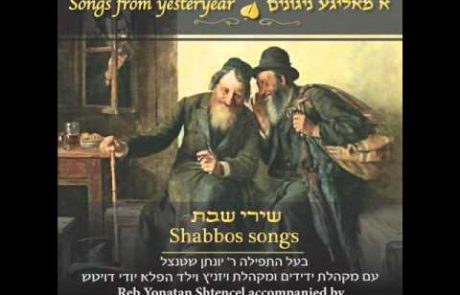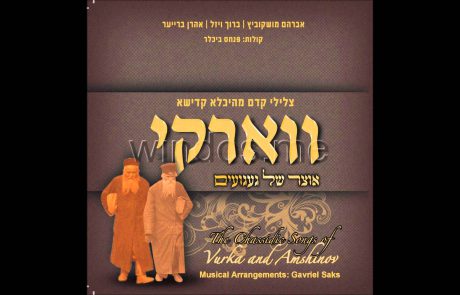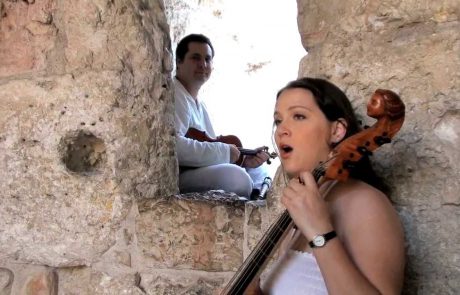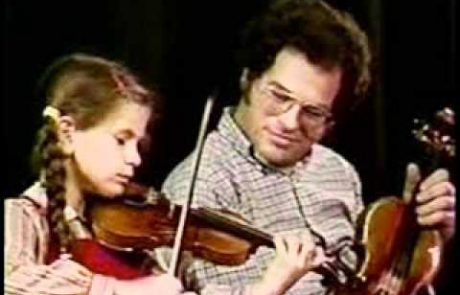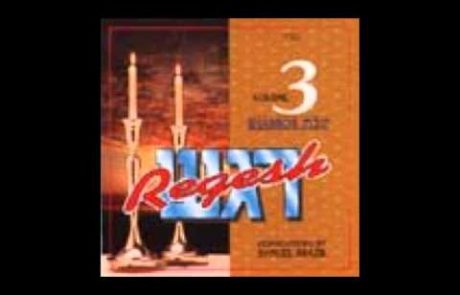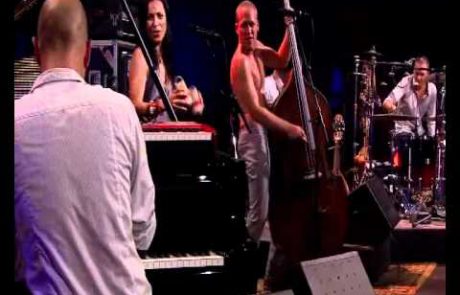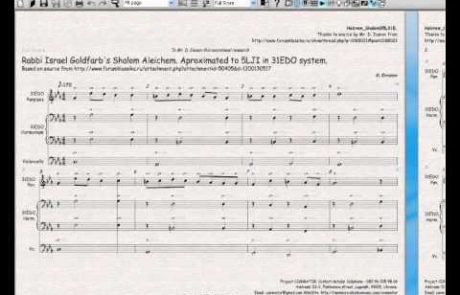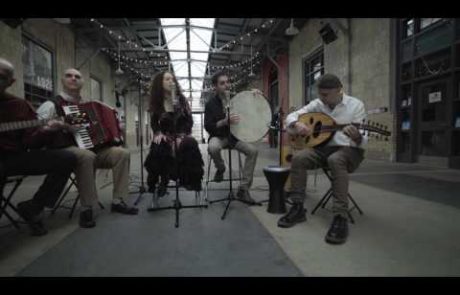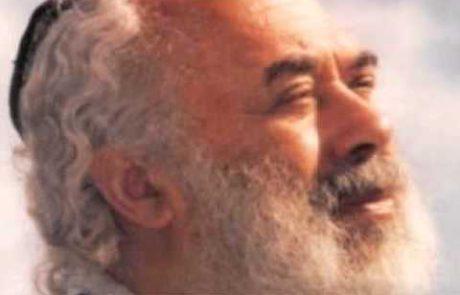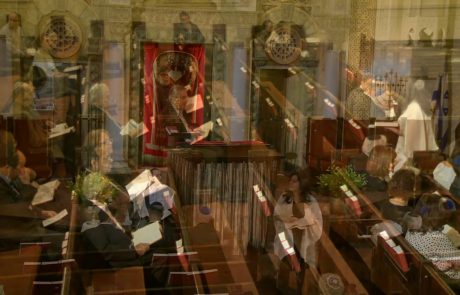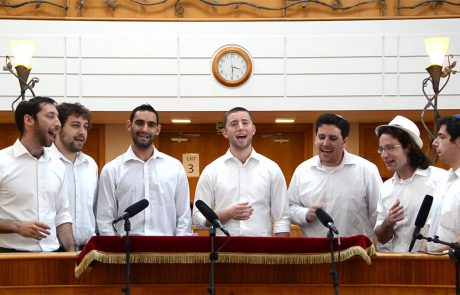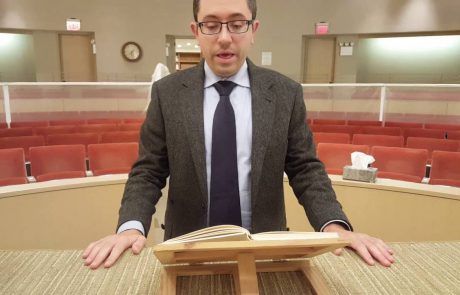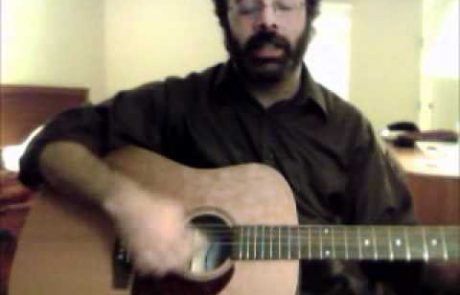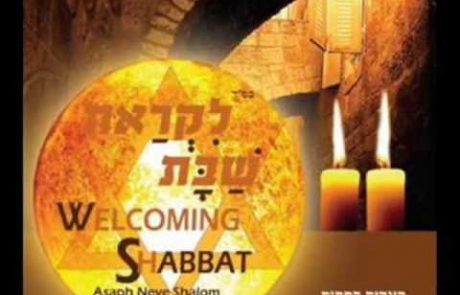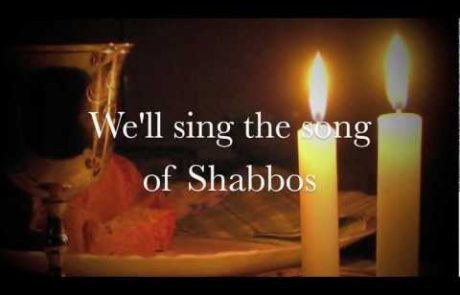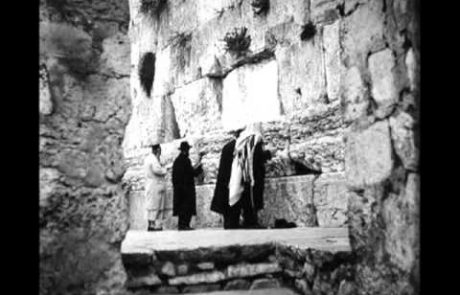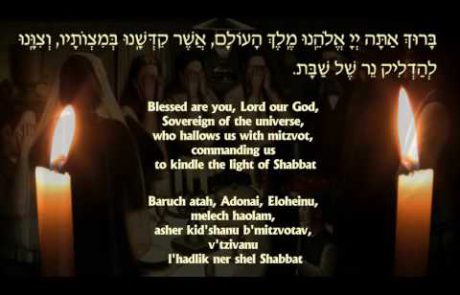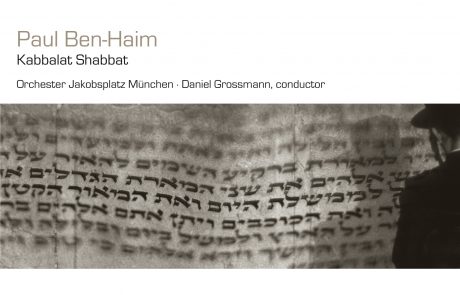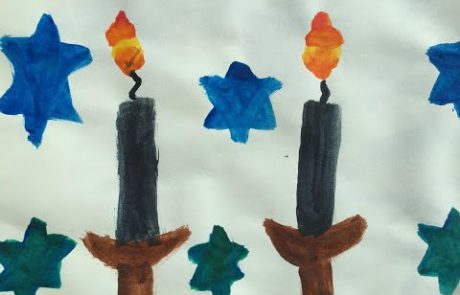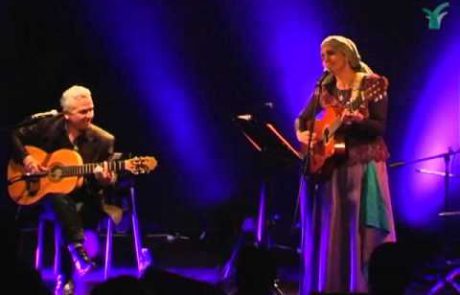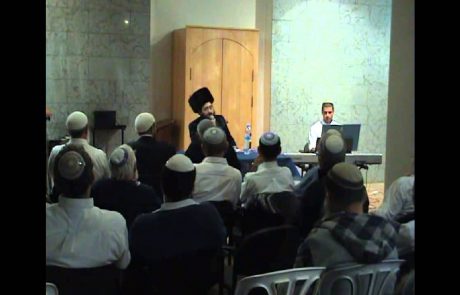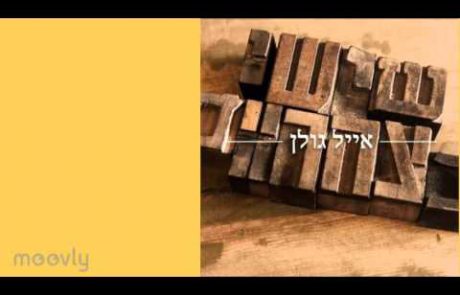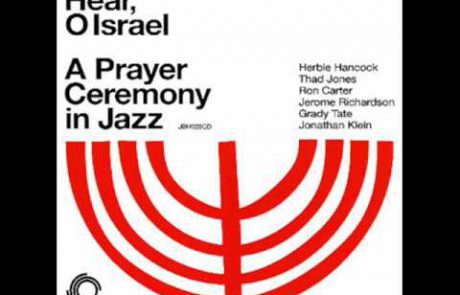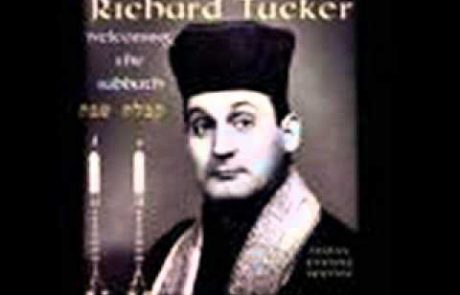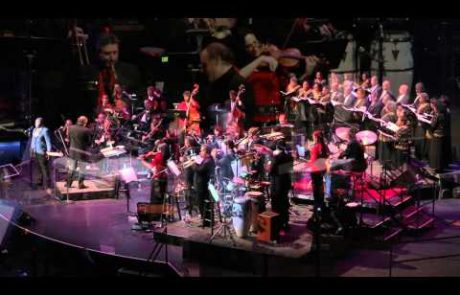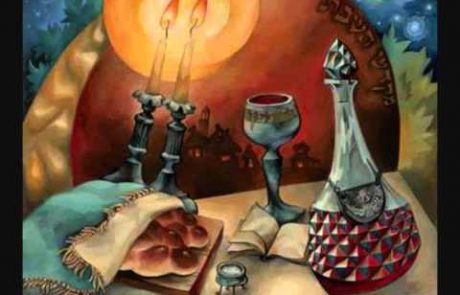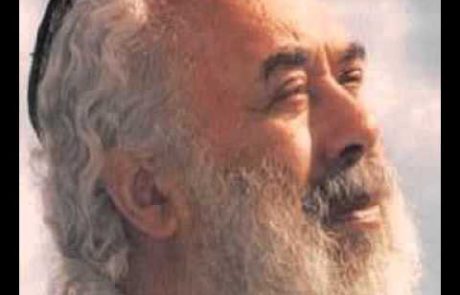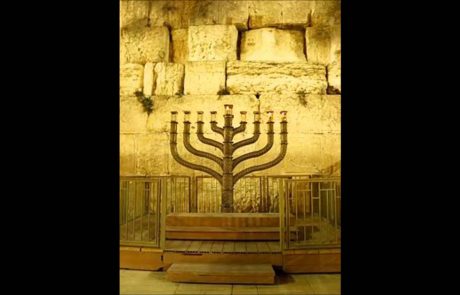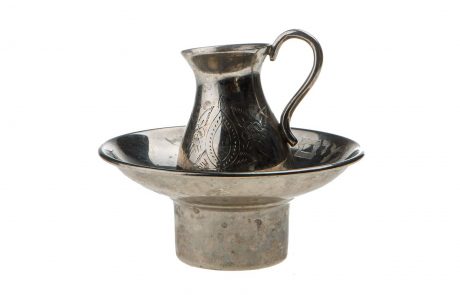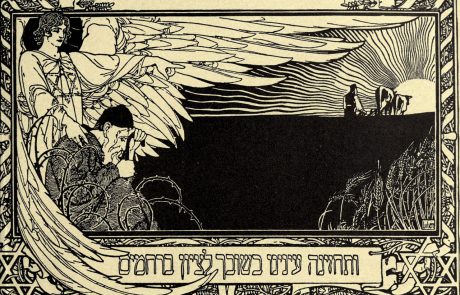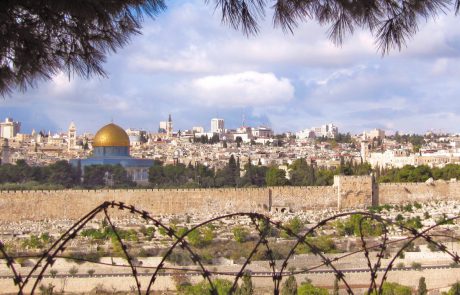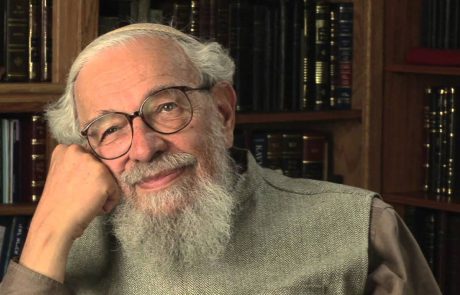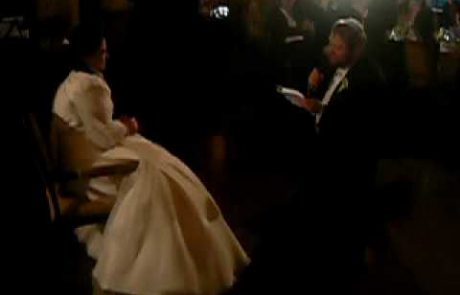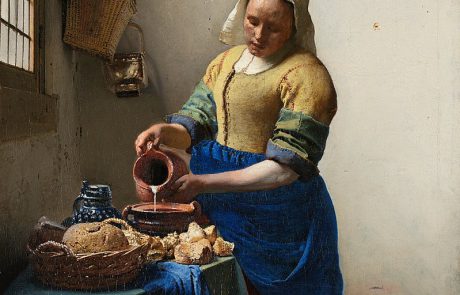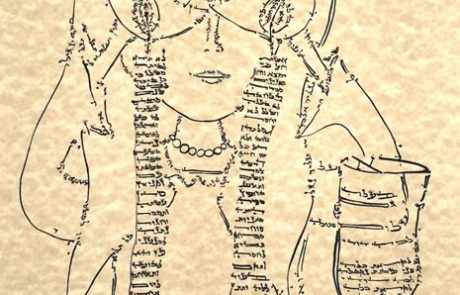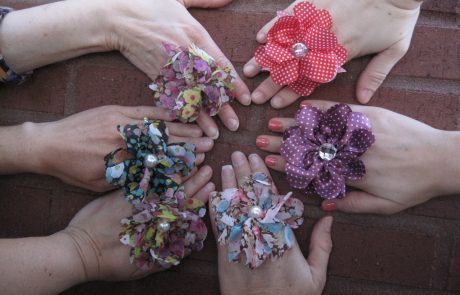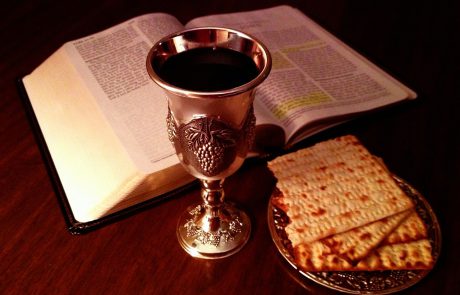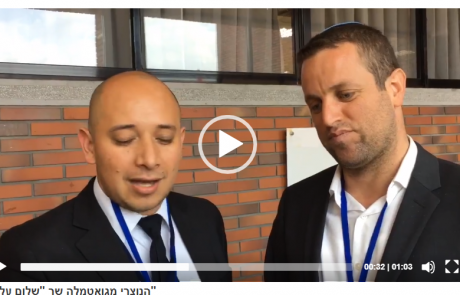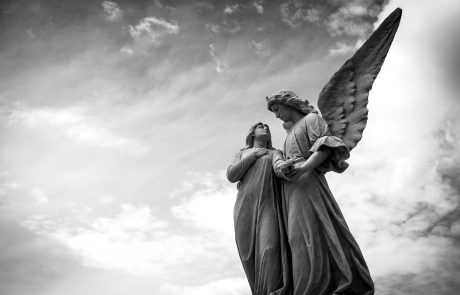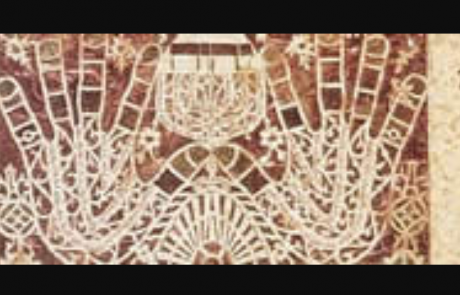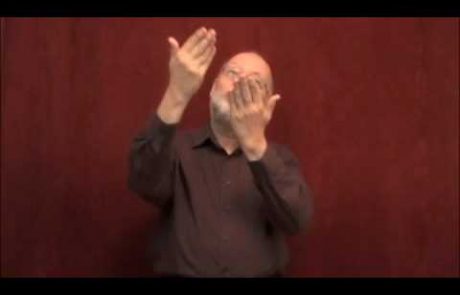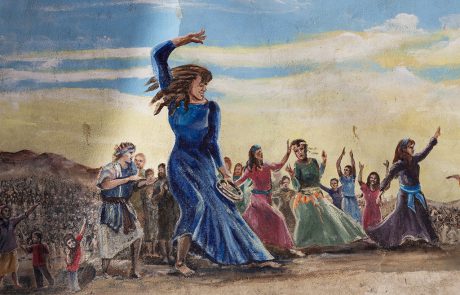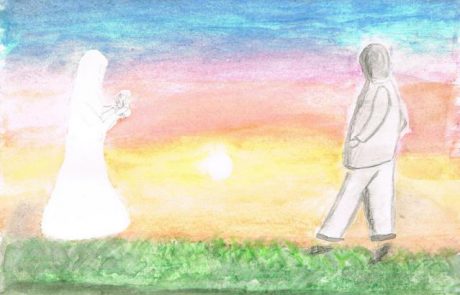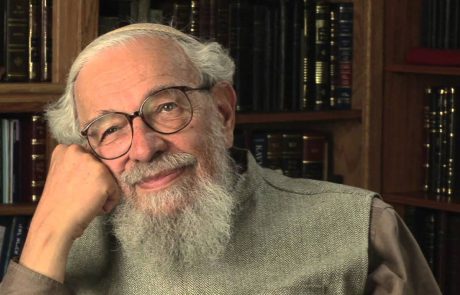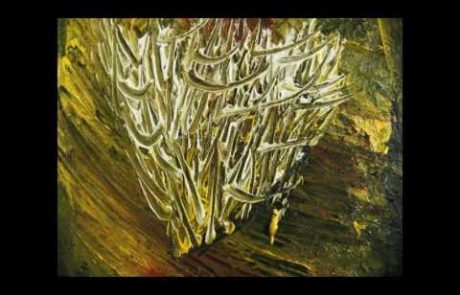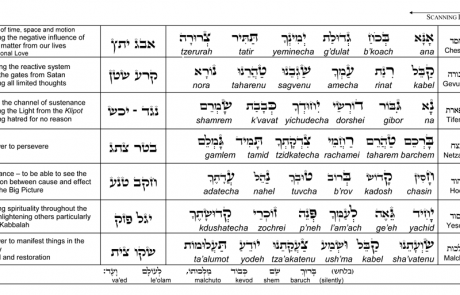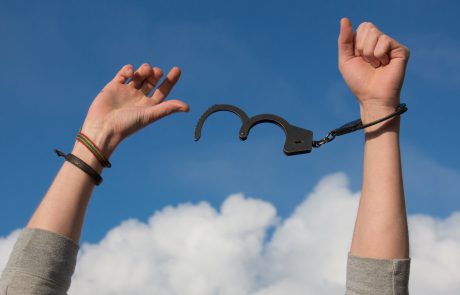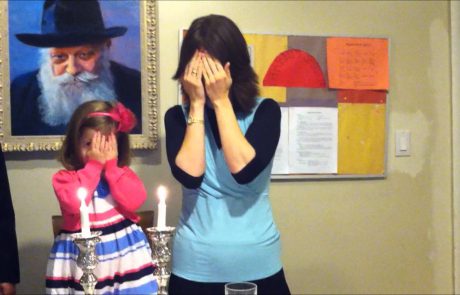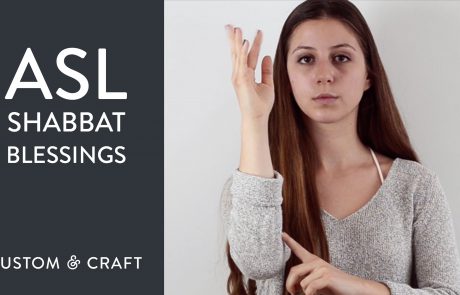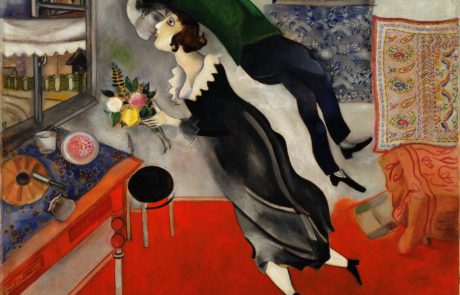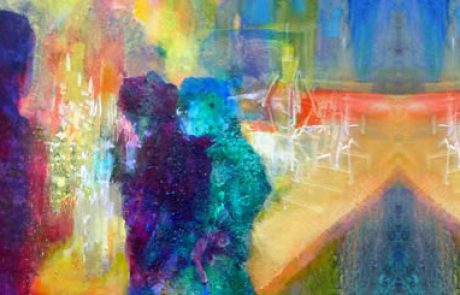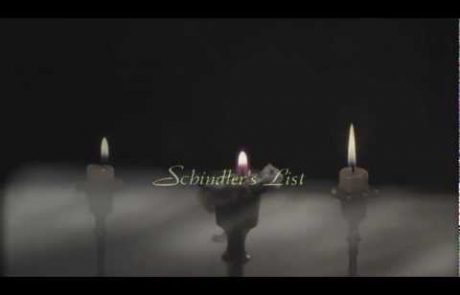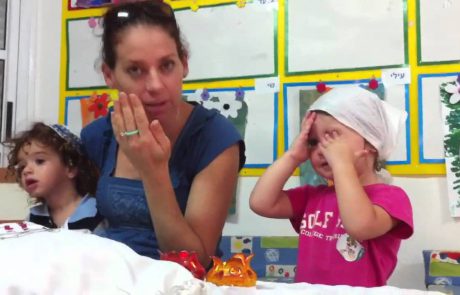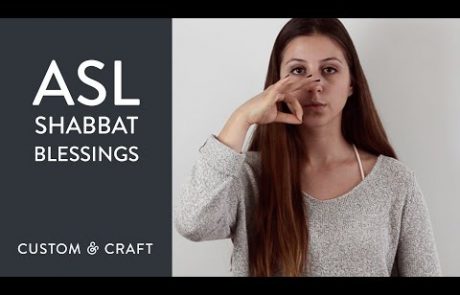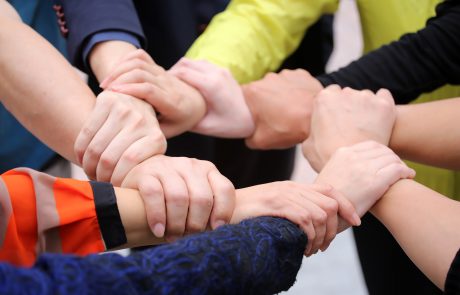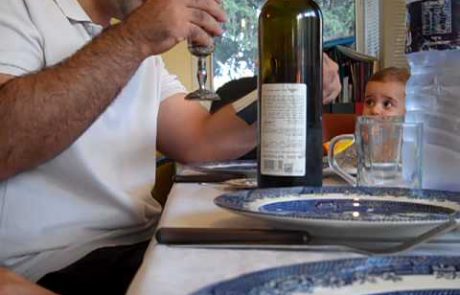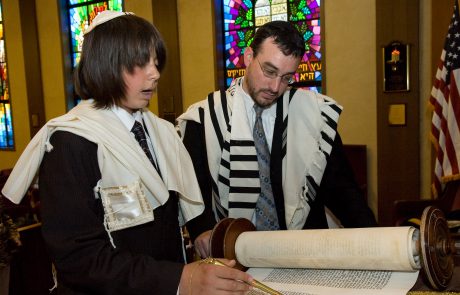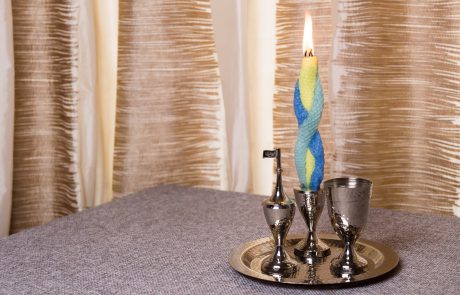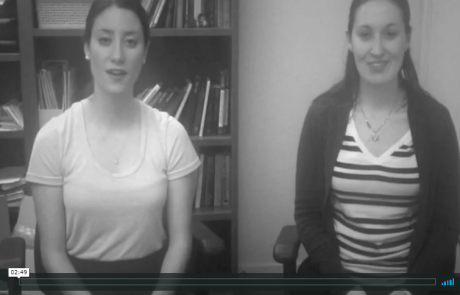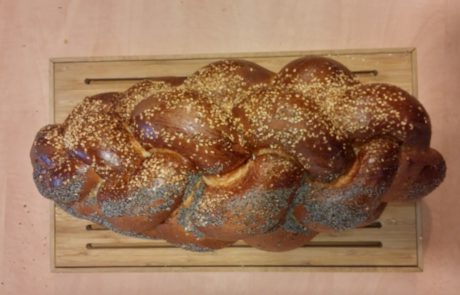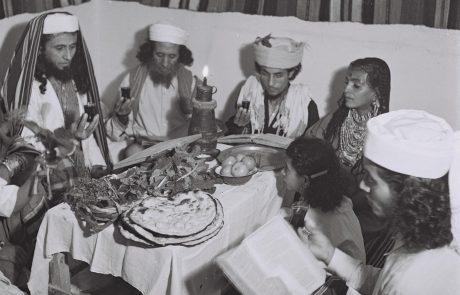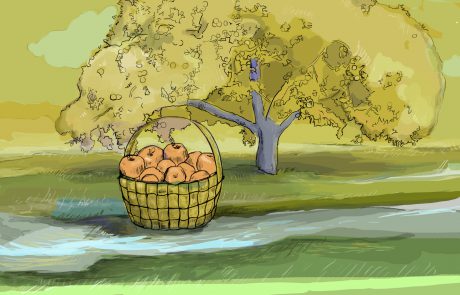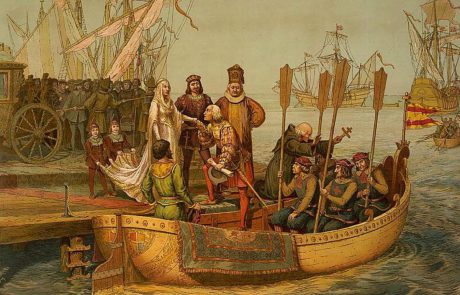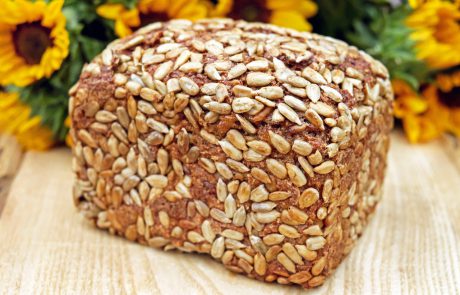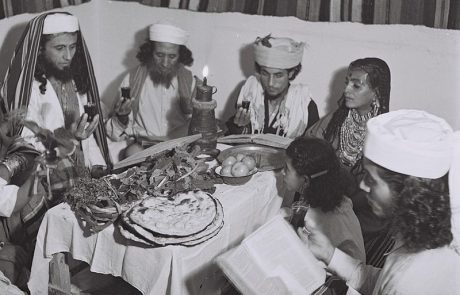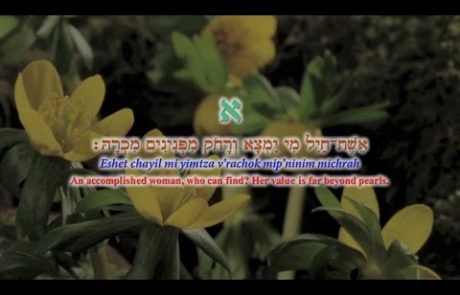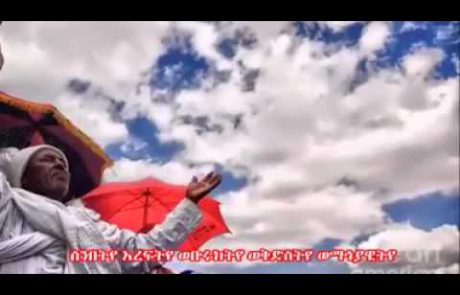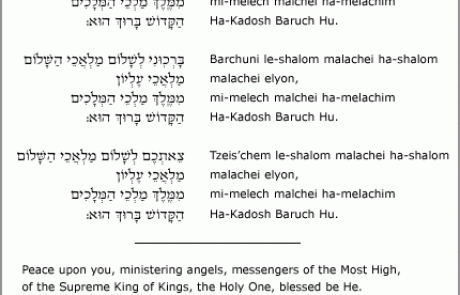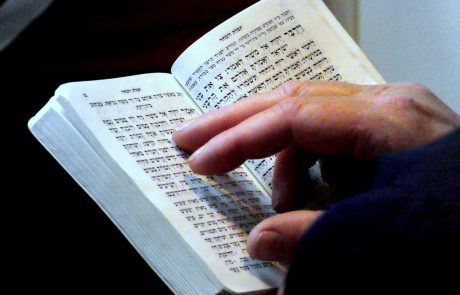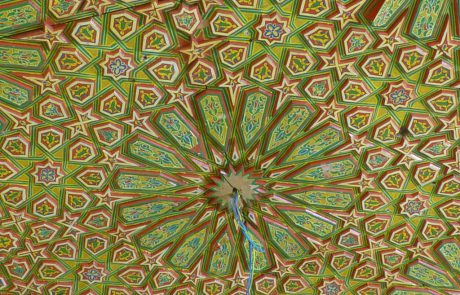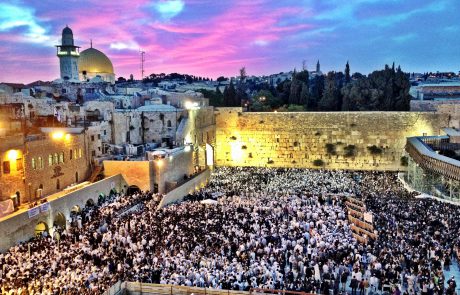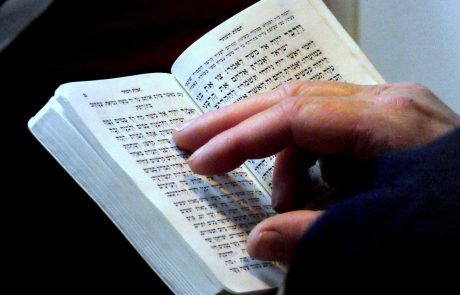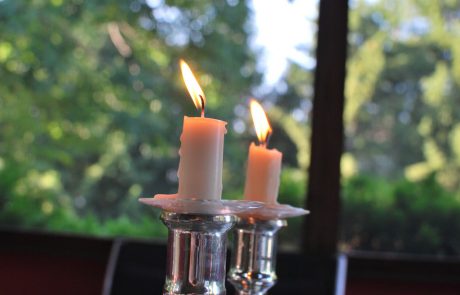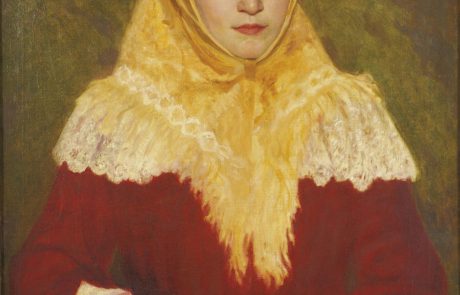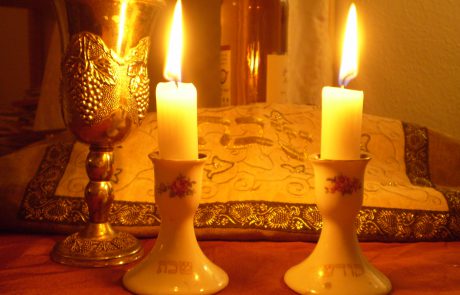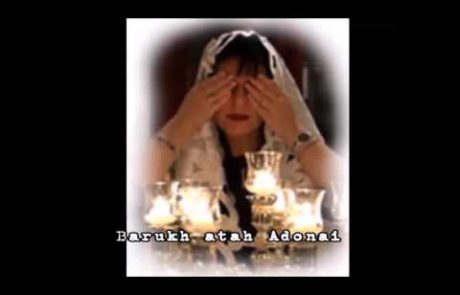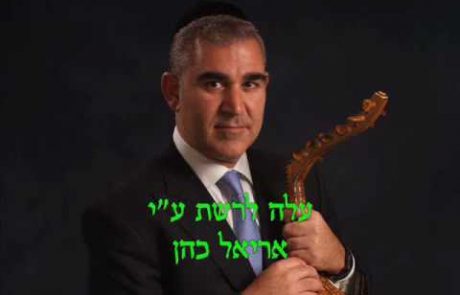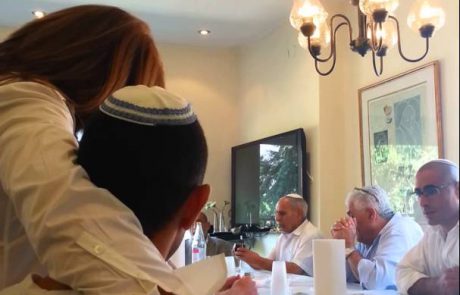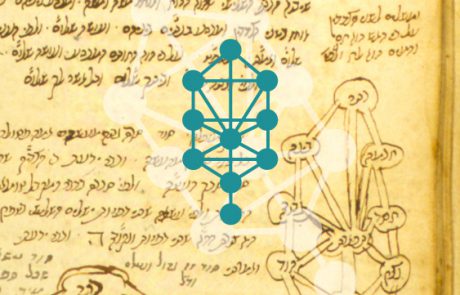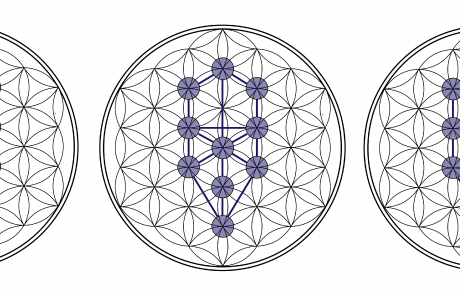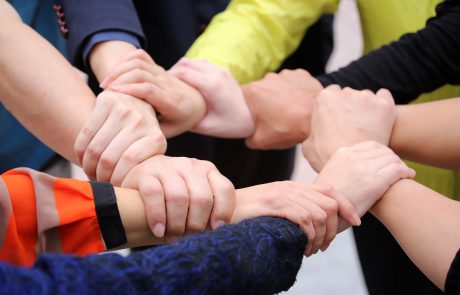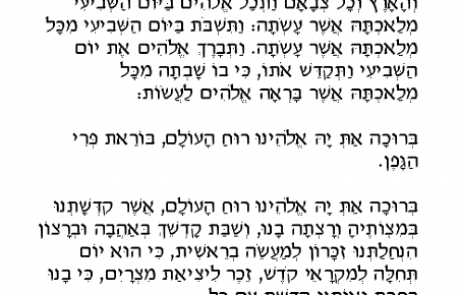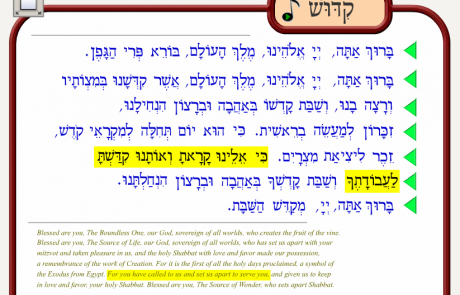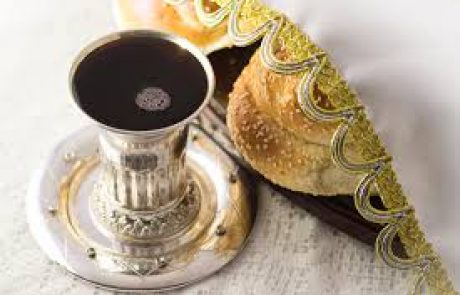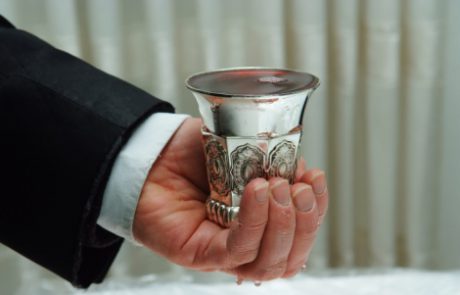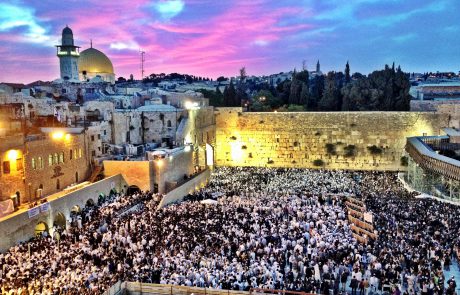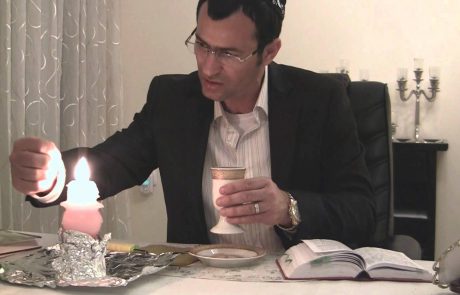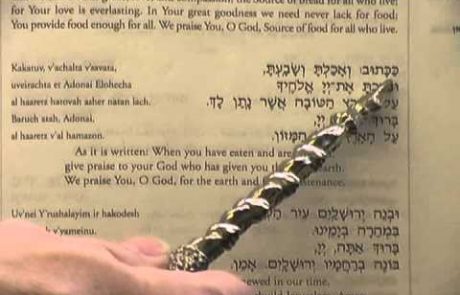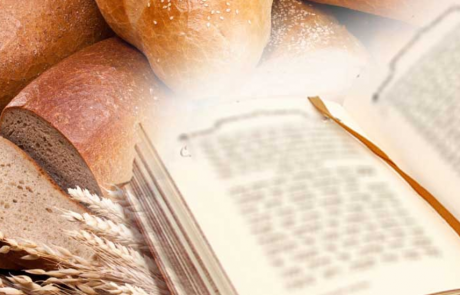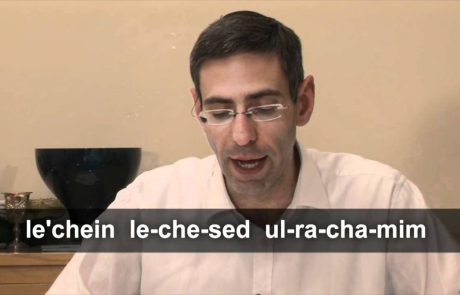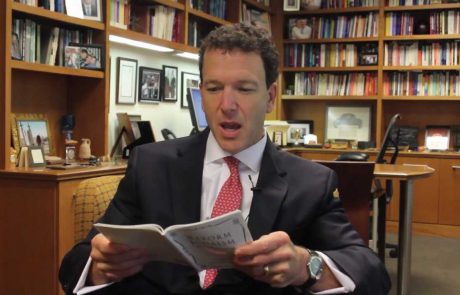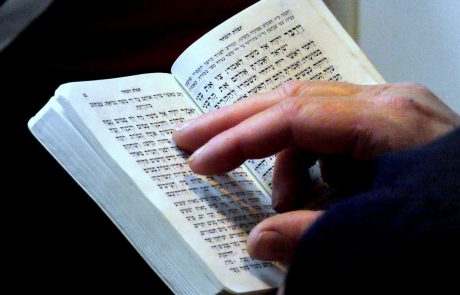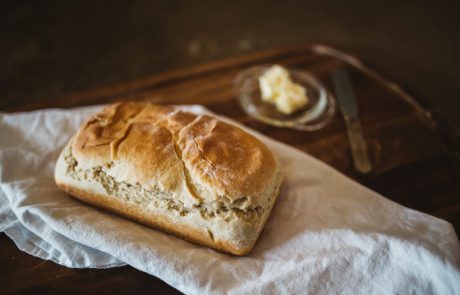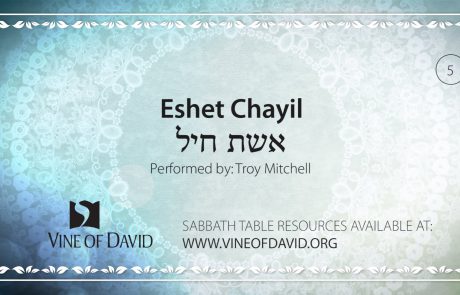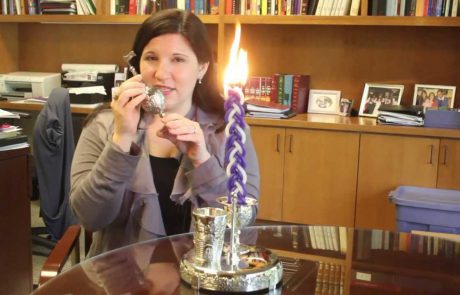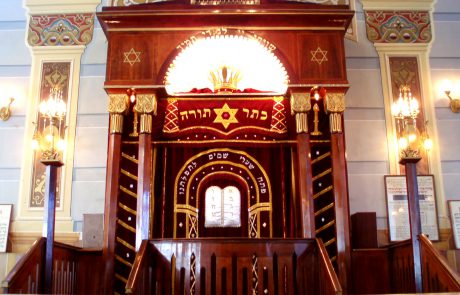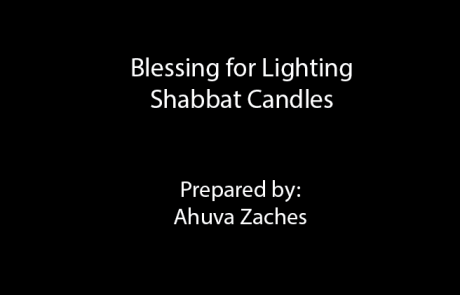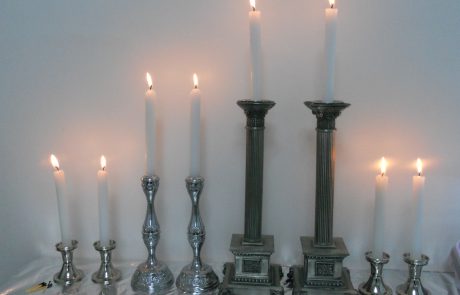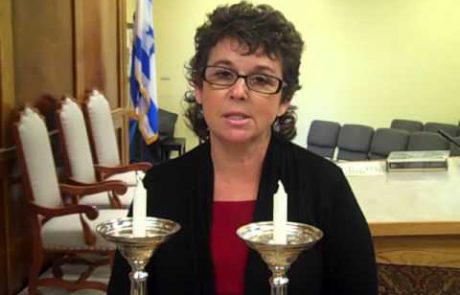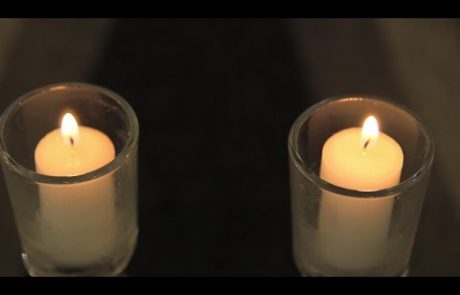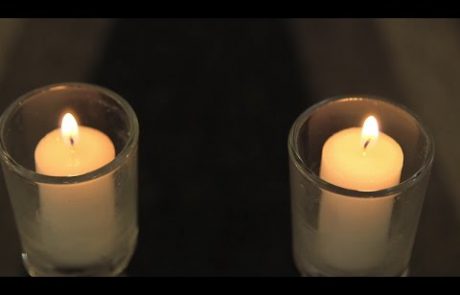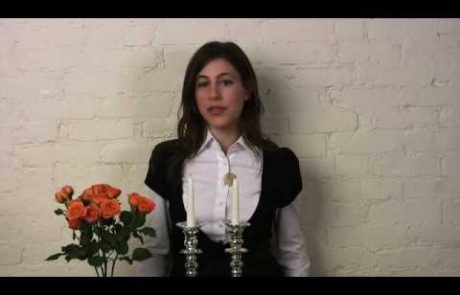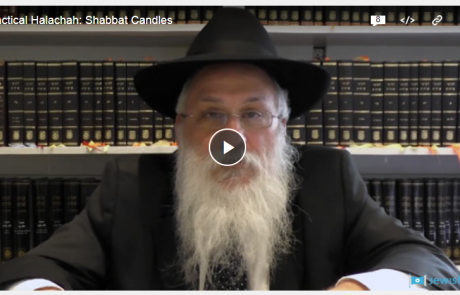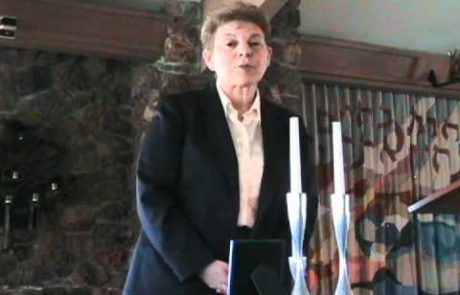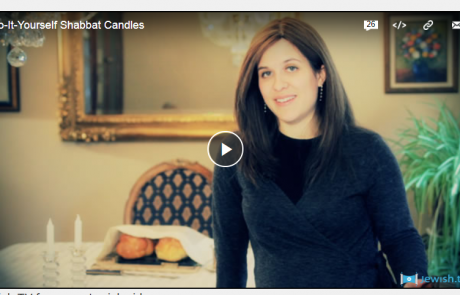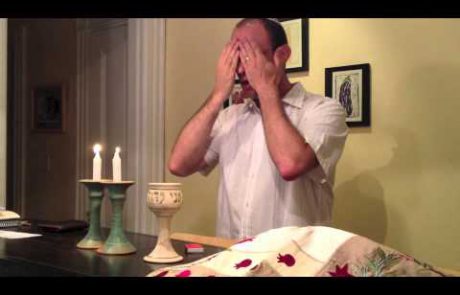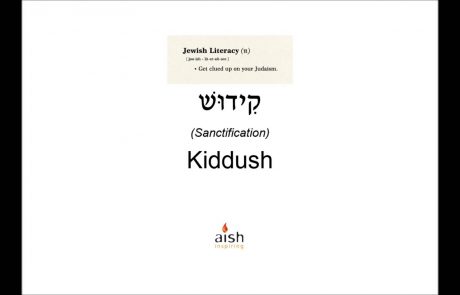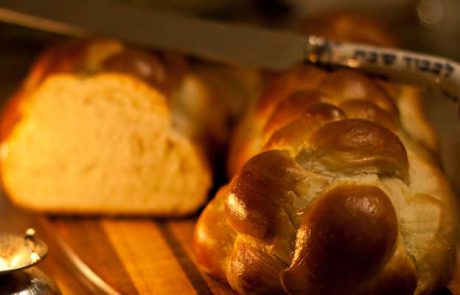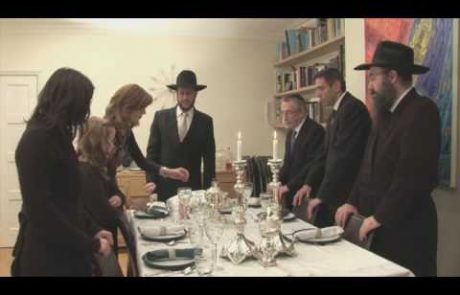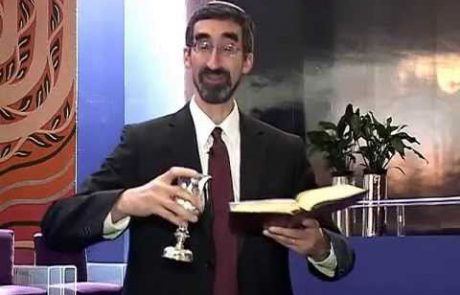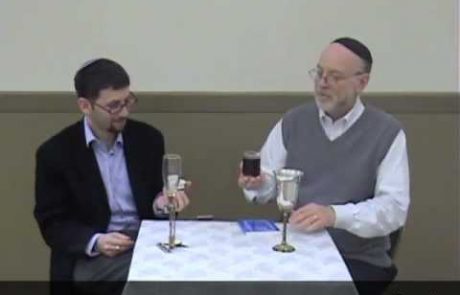
Shabbat
While many of the forefathers of the Zionist movement came from traditional homes, their outward appearance or lifestyle did not necessarily reflect this background. Nevertheless, the overwhelming majority of them had a deep appreciation for Jewish tradition, and many of them saw themselves as the torchbearers that would pass on an evolving Jewish tradition to the next generation. Shabbat, for example, was considered by many Zionist leaders to be a Jewish-national value that would play an important role in defining the character of the new country that was being formed.
- Ahad Ha’am is quoted as saying that, “One need not be a Zionist or scrupulous about religious commandments in order to recognize the value of the Sabbath … Anyone who feels a true bond in his heart with the life of the nation over many generations, simply will not be able…to imagine the Jewish People without the Sabbath Queen.”
- Haim Nahman Bialik, the national poet, was even more emphatic, stating that, “The Land of Israel without the Sabbath will not be built, but rather destroyed, and all of your work will be for naught. The Jewish people will never give up the Sabbath, which is not only the keystone of Israel’s existence but of human existence.”
- Berl Katznelson, the founder of the Labor Zionist Movement and Chairman of KKL-JNF from 1942-1944, spoke words of praise about Shabbat: “The Sabbath for me is one of the pillars of Hebrew culture and the first socialist achievement of the working man in human history…We must turn our Sabbath and our festivals into fires of culture.”
These are the figures that laid the foundations for the State of Israel and paved the way that we continue to walk until today. The leaders of the Zionist movement saw Judaism and Zionism in the Land of Israel as two sides of the same coin, a coin that belongs to all of us.
KKL-JNF continues this tradition, working in Israel and around the world to convey the values of Zionism and Jewish heritage to the younger generation of our people.
E-Learning
Click here to show more E-Learning content ↓
Be the Light: The Power of Fire in Judaism
Fire plays an essential role in Jewish ritual, from lighting candles to welcome Shabbat and holidays, during the Havdalah ceremony, on Hannukah, and on the anniversary of a loved one’s
Havdalah – Taking Leave of Shabbat: An Introduction & Guide
This thorough article from My Jewish Learning provides a basic outline of the Havdalah ritual that concludes Shabbat, along with an explanation of the meaning behind it, step-by-step written and
Friday Night & Beyond: Insights on Havdalah (Plus How To, Text & Audio)
Great for beginners, this thorough excerpt from “Friday Night and Beyond” by Lori Palatnik offers an explanation of the structure and meaning behind the ritual, a step-by-step how-to guide of the Orthodox
What Is Havdalah?
This thorough article from Chabad.org provides a comprehensive introduction to the Havdalah ceremony that concludes Shabbat, including an outline of the ritual, an exploration of the deep spiritual meaning behind
Women and Zimmun
This two page article by Jennifer Breger summarizes the complicated subject of a women’s participation in a “Zimmun,” (literally, “invitation”) the opening verses of the Grace After Meals recited responsively
Introduction to the Grace After Meals
This thorough and informative article explains the structure, content, and development of the Grace After Meals, as well as some spiritual intentions behind the ritual and explanations of various customs.
“Benching” 101: The Origin, Stucture, Customs and History of the Grace After Meals
This comprehensive introductory article by Kate Palley provides a thorough explanation for people of all knowledge levels on the origin, structure, customs, and history of the Grace After Meals. The author clarifies the circumstances under
A Brief Introduction to the Grace After Meals
This short post offers a basic overview of the Grace After Meals, including its biblical sources, an explanation of its structure, and links to the full Hebrew, English and transliterated
Why Say Bircat Hamazon? A Halachic and Spiritual Approach from Maimonides
In this ten-minute video featured on Chabad.org, Rabbi Mendel Kaplan discusses the halachic and spiritual significance of the Grace After Meals according to Maimonides (Rabbi Moses ben Maimon, 1135-1204), a highly
An Esoteric, Historical and Halachic Analysis of the Grace After Meals
This 46 minute lecture from Chabad.org is an in-depth exploration of some esoteric, historical and halachic ideas around the Grace After Meals by Rabbi Yehuda Leib Schapiro, the dean of the Yeshiva
A Historical Approach to the Composition and Structure of the Grace After Meals
This thorough article by Rabbi Yizchak Etshalom outlines the structure of the Grace After Meals, explaining how the Biblical command to thank God for the food and land is fulfilled through
Rav Kook: Blessings Over Bread and Torah
This excerpt, written by Rabbi Avraham Yitzchak HaCohen Kook, explores the dual benefits we gain from both eating and studying Torah, comparing the Grace After Meals and the blessing over studying
Eishet Chayil Q&A
This excerpt from an article by Rabbi Moshe Bogomilsky presents and responds to both technical and philosophical questions about specific words and verses in Eishet Chayil. Due to his use of Hebrew
On Labor Day, Let’s Consider a New ‘Woman of Valor’
This article, posted on Labor Day by Lana Adler, criticizes Eishet Chayil for celebrating a woman who works only for others, instead of herself. While she is certainly capable and
Women of Valor: An Evolving Role Model
In this article, Jordyn Rozensky explores the concept of valor from a modern, feminist perspective, challenging readers to think about what it means to them and who they consider contemporary “Women of Valor.”
A Valorous Woman: A Feminist Critique of Eishet Chayil
This blog post by Ellie Kahn challenges the impossible standards to which women have always been held, from Biblical times (as seen in Proverbs 31, the text of Eishet Chayil) through
A Love Letter to the Woman of Valor
In this scholarly article, Dr. Malka Simkovich describes her evolving relationship to the song Eishet Chayil. While she once disregarded it as outdated and misogynistic, upon a closer analysis of
Happy to Skip Eishet Chayil: A Modern Feminist Critique
In this personal critique, Lauren Kramer challenges the traditional custom of singing Eishet Chayil to the woman of the house on Friday night. She claims that the words are outdated
Standing or Sitting for Shalom Aleichem and Eshet Chayil?
This short post states that there is no uniform custom for whether the songs “Shalom Aleichem” and “Eshet Chayil” should be sung standing or sitting on Friday night. This response was written by Rabbi
Eishet Chayil: A Template for Modern Women
In this article, a modern woman who lives by Jewish tradition explains why she feels that Eishet Chayil is very relevant for her and her family. In response to another
How Eishet Chayil Shaped One Woman’s Evolving Jewish Identity
In this personal article, Sarah Zell Young shares how her religious journey is reflected in her evolving relationship with the words of Eishet Chayil. From her initial embracing of traditional observance,
Origins and Interpretations of Proverbs 31
This brief article from Wikipedia offers an introduction to Proverbs 31, the Biblical source for Eishet Chayil. It provides both literal and classic interpretations of the text, and gives different theories as
More Precious Than Pearls: A Digital Book of Essays on Eishet Chayil
This 94 page book, “More Precious Than Pearls: A Prayer for the Women of Valor in Our Lives,” is a collection of ten essays discussing Eishet Chayil from a wide variety of
How To Read Eshet Chayil: Reflections from a Feminist Scholar
This reflection by feminist scholar, Dr. Wendy Zierler, traces her evolving relationship with the words of Eshet Chayil over the course of her life. She suggests several ways of reading the text,
Which Biblical Woman Was the Original Eishet Chayil?
This essay discusses some theories as to which biblical woman the poem, Eishet Chayil, could be referring. The author, Asher Gabbay, suggests that since the only woman in the Bible specifically
Why We Recite Eishet Chayil on Friday Night
In order to explain why Eishet Chayil is traditionally sung on Shabbat, this detailed article by Rabbi Yehuda Shuprin offers insight into the literal reading of the text, as well as several
Introduction to Eishet Chayil: Meaning, Origins, How To, English Text
This detailed article by Chaviva Gordon-Bennett provides a thorough introduction to Eishet Chayil, including the meaning, origins, and practical how-to’s of singing this song on Friday night, along with the English translation of the
A Scholarly and Contextual Approach to the Identity of the Eshet Chayil
This scholarly article argues that there is no single answer to the question “Who is the Eishet Chayil?” because the interpretation relies upon the context in which it is read. Professor
One Jewish Woman’s Musings on Eishet Chayil
In this personal blog post, Amy Meltzer shares her desire, as a Jewish woman, to hear her praises sung at her family’s Friday night table, particularly since showing such appreciation
A Complete Guide to Eishet Chayil
This thorough article offers a complete introduction to the custom of singing Eishet Chayil on Friday night, including the reasons behind the ritual, a step-by-step guide noting common customs, the Hebrew,
Exploring the Controversial Aspects of Shalom Aleichem: Idolatry & Domestic Relations
In this provocative article, Atar Hadari explores some of the more controversial aspects of the song “Shalom Aleichem,” explaining why several leading rabbinic figures have taken issue with it. Hadari
Friday Night: Angels in My House
In this personal article, Jewish educator Amy Deutsch suggests an original understanding of what type of angels we are welcoming into our home when we sing Shalom Aleichem on Friday night.
An Introduction to Shalom Aleichem
The Wikipedia entry about Shalom Aleichem includes an explanation of the origins and background of the custom of singing ‘Shalom Aleichem’ on Friday night prior to Kiddush, along with the
Do Jews Believe in Angels?
This comprehensive article, written by Rabbi Louis Jacobs on MyJewishLearning.com, discusses the development of the references and understanding of angels in Judaism from Biblical times until modern day, including an exploration of how
Friday Night & Beyond: Insights on Shalom Aleichem (Plus Text & Audio)
This thorough excerpt from “Friday Night and Beyond” by Lori Palatnik provides meaningful explanations as to why Shalom Aleichem is recited at the beginning of the Shabbat evening meal. Complete with the Hebrew,
The Significance of the Shabbat Angels in Breslov Hassidic Thought
This excerpt from “7th Heaven: Shabbat With Rebbe Nachman of Breslov” explores the significance of angels in Jewish theology, focusing on the accompanying angels that visit the home each Shabbat. Moshe
Shalom Aleichem: Various Customs and Explanations
In this short article, Devorah Channah outlines the origins of Shalom Aleichem, as well as several different customs of why and how the song is sung according to different traditions on Shabbat
Maimonides’ Ten Levels of Angels
In this article, Whitney Hopler elaborates on the ten different types of angels found in Jewish literature according to Maimonides (Rabbi Moses ben Maimon, 1135-1204), the great medieval Spanish philosopher. Although angels
The Role of Angels in Judaism
This comprehensive article from Chabad.org provides a survey of the Jewish understanding of angels and the role they play within Jewish theology. Shalom Aleichem, traditionally sung on Friday night before Kiddush,
Chabad: Origins, Customs, and Meanings Behind Shalom Aleichem
In this 9:15 long video from Chabad.org, Rabbi Pinchas Taylor gives a thorough and detailed explanation of the origins, customs and meanings behind singing Shalom Aleichem as part of the Shabbat evening ritual. Sung
Why Repeat Shalom Aleichem Three Times?
This responsum from the “Ask the Rabbi” column of the Ohr Somayach website provides several explanations for the popular custom of reciting each stanza of Shalom Aleichem three times, as opposed
Different Orthodox Shalom Aleichem Customs
In this short article, Rabbi Simcha Weinberg, founder of the leading Torah website, The Foundation Stone, briefly presents the unique “Shalom Aleichem” customs of several well-known rabbinic figures, including The Ben
Chabad Customs: The Background and Details of Shalom Aleichem
This short post presents the background and halachic details surrounding Shalom Aleichem, according to the Shulchan Aruch Harav – the body of Jewish law compiled by Rabbi Shneur Zalman of
Alone Time: Why We Usher the Shabbat Angels Out
In this article from Chabad.org, Rabbi Elly Krimsky explores why we bid farewell to the accompanying angels in Shalom Aleichem, focusing on a Chasidic idea that when we are alone we have
What is Havdalah and Why is it Important?
In this 3 and a half minute long video, Dayan Ivan Binstock explains the Havdalah ceremony that concludes Shabbat, including the basic structure of the ritual as well as its important
The Mystical Meaning of Havdalah
In this almost 14 minute long video, Rabbi Alon Anava delves into some of the mystical reasons behind the Havdalah ceremony that concludes Shabbat. He explains the custom of rubbing
Havdalah 101
This thorough article from Wikipedia provides a comprehensive overview of the Havdalah ceremony that concludes Shabbat, including an introduction to the basic structure of the ritual, the meaning behind it, and variations
The Structure and Spirit of the Kabbalat Shabbat Service
This brief article from Chabad.org describes the structure of the Kabbalat Shabbat and Ma’ariv even prayer services on Shabbat. With a focus on prayer as the essence of Shabbat, the
L’cha Dodi and the Kabbalistic Background to Kabbalat Shabbat: A Collection of Articles
This link will take you to a collection of articles exploring the Kabbalistic background to the Kabbalat Shabbat service, with a special focus on the L’cha Dodi prayer, a central
The Structure & Mystical Meaning of Kabbalat Shabbat
This post presents two approximately 4 minute long videos by Rabbi David Paskin introducing the basic structure and meaning behind the Kabbalat Shabbat service. The first video focuses on the
Guide to the Friday Night Synagogue Services
Great for beginners, this brief excerpt from “Friday Night and Beyond” by Lori Palatnik offers an explanation of the structure and meaning behind the Friday night synagogue services, including Mincha (the afternoon
Introduction to the Kabbalat Shabbat Prayer Service
This introductory article describes the origins and structure of the Kabbalat Shabbat services, noting various customs practiced in different communities. Originally from the Encyclopaedia Judaica, this article was shared on Jewish Virtual
Welcoming the Sabbath with Kabbalat Shabbat, Lecha Dodi and Ma’ariv
This introductory article by George Robinson outlines the basic structure of the Kabbalat Shabbat and evening prayer service, including an explanation of traditions held in various communities and the development of
Zemirot: An Introduction
The word ‘zemer’ (plural – ‘zemirot’) actually means ‘song’ in Hebrew. It has become the word used almost exclusively to describe the various table songs that are sung at the
Rabbi Abraham Twerski: Candle Lighting and a Child’s Self Worth
In this short post, Rabbi Abraham Twerski relays his childhood memories of his mother lighting the Shabbat candles, focusing on the powerful message they sent about his own inherent self
Shabbat Home Ritual: Candle Lighting
In this short post, Sarah Fishman describes the basics of the candle lighting ceremony, as part of an article introducing the Shabbat home rituals of candle lighting, kiddush over wine,
Reb Zalman Schachter Shalomi: Shabbat Candle Lighting as a Lesson in Faith
This interview describes how watching his mother light Shabbat candles was a formative spiritual experience for Reb Zalman Schacther Shalomi, one of the founders of the Jewish Renewal movement, which
Sacred Ritual: Lighting Shabbat Candles
This short article serves as an introduction to the basics of the candle lighting ceremony, including who lights candles, with what type of candles, when, and how, plus a mention of
The Meaning Behind the Flames
In this comprehensive article, Rhona Lewis shares many of the deep spiritual and kabbalistic teachings behind the mitzvah of lighting Shabbat candles. Using a wide variety of Biblical, Talmudic, halachic
An Academic Approach to the Meaning of Shabbat Candles
In this highly sourced academic article, Dr. Ismar Schorsch explores how and why lighting Shabbat candles is of paramount importance in Jewish tradition, despite the fact that it is actually not
Shabbat Candles: Why is it Called ‘A Women’s Mitzvah?’
This article, reprinted on My Jewish Learning from JOFA, the Jewish Orthodox Feminist Alliance, mentions a variety of candle lighting customs, including how many candles to light, the order of lighting
Covering Our Eyes During Shabbat Candle Lighting
This post explains the halachic reasoning behind the popular custom of covering one’s eyes while reciting the blessing after lighting the Shabbat candles. The author, Rabbi Howard Markose, is a
Lighting Candles: A Spiritual Cure-all
In this thought-provoking article, psychologist, Dr. Miriam Biber, explores the unique spiritual power of lighting the Shabbat candles through personal anecdotes and biblical, Talmudic and Chassidic sources. Described as a prototype for all of
The Connection Between Giving Tzedakah and Shabbat Candle Lighting
The following article describes the practice of giving tzedakah (charity) before lighting the Shabbat evening candles, along with an explanation as to how these two actions are intrinsically connected. This
The History of Lighting the Shabbat Candles
In this excerpt from the article, “Lighting Sabbath Candles,” Avi Lazerson discusses the historical and textual explanations for the commandment of lighting the Shabbat evening candles. He explains how this ritual was
Candle Lighting: The Test of Time
The following excerpt from the article “Truth Stands the Test of Time” explains how the Shabbat candles are symbolic of the truth and authenticity of the Torah and the Jewish
Candle Lighting: A Blessing or a Curse to Women?
In the following excerpt from Wendy I. Zierler’s article, “Shedding Feminist Light on the Sabbath Candles,” Zierler explores the possibility that the commandment for women to light the Shabbat evening
Reconstructionist Thought on Candle Lighting
In this short excerpt from the essay “Exploring Judaism: A Reconstructionist Approach,” Shabbat candle lighting is expounded on as an example of the importance of ritual within Reconstructionist Judaism. Reconstructionist Judaism
Shabbat Candles as a Revelation of the Hidden Light of Creation
The following excerpt is a translation and explanation of a Hasidic text relating to Shabbat candle lighting, from The Sabbath Soul: Mystical Reflections on the Transformative Power of Holy Time by Eitan
Rabbi Abraham Joshua Heschel Quotes on Shabbat Candles
These poetic quotes from Rabbi Abraham Joshua Heschel describe the moment when Shabbat arrives, bringing with it an atmosphere of light, peace, rest, joy, and renewal. Heschel points to the creative and
Women in Judaism: Lighting Shabbat Candles
This article explains how lighting Shabbat candles brings peace and harmony into the home, both practically and symbolically, and why this ritual is connected to the unique role of women in
The History and Symbolism of Lighting Shabbat Candles
In this short, informative video, Rabbi Michael Laitner offers both historical and spiritual explanations for the Shabbat evening candle lighting and provides guidelines on how to fulfill the commandment. This video
Waving the Hands Before Candle Lighting: A Kabbalistic Understanding
This short post explores the Halachic (Jewish law) and Kabbalistic (Jewish mysticism) explanations as to why those lighting the Shabbat evening candles wave their hands three times over the lit candles
Shabbat Candle Lighting: Empowering or Restricting to Women?
The following article addresses whether the tradition of women lighting Shabbat candles is empowering or restricting. The anonymous author explores the role of women in Orthodox Judaism, drawing on both Jewish
“Shamor” and “Zachor”: Observe and Remember
This blog post by Rabbi Adam Feldman explores the dual language of “shamor” and “zachor” used in the Torah to command the Jewish people to “remember” and “observe” Shabbat. Jewish
A Woman Before God: Candle Lighting Throughout the Generations
This article discusses the strong feminine aspect of the candle lighting ritual, including how various traditions which have been handed down from generation to generation through family matriarchs have gained halachic
HuffPost Blog: “Going Dark” on Shabbat
In this blog post, Ellie Krupnick shares her personal journey of coming to appreciate the refuge from technology and work offered by Shabbat. Although not specifically about the candle lighting ritual,
Shabbat Observance in Alaska: Lighting Shabbat Candles Without Sunset
In this article, Rabbi Dov Gartenberg shares his thoughts and halachic insights about Shabbat observance when living in Alaska, where during certain times of the year, the sun does not
Switching On Shabbat: Temples in Time
Referencing Jewish thinkers Rabbi Abraham Joshua Heschel and Blu Greenberg, this article describes lighting the Shabbat candles as a transformative act that enables us to create temples in time, thus
Sarah’s Light: The Candles that Never Waned
This enlightening article explores the age old connection between Jewish women and Shabbat candles, explaining references to the Matriarch, Sarah, lighting Shabbat candles in the Torah and Midrash. The article delves into
Candle Lighting as a Spiritual Union
This piece provides a mystical explanation of the Shabbat candle lighting ritual, applying ancient Kabbalistic concepts in a way that is relevant for modern Jews. Written by Rabbi Goldie Milgram, a
The Sabbath as a Journey Through the Worlds
In this piece, the author describes Shabbat as a holistic experience, beginning with the lighting of the Shabbat candles. She suggests that the two candles represent different dualistic aspects we
Lighting Candles as a Way to “Unplug” from Distraction and “Plug in” to Shabbat
In this short video, Rabbi Noa Kushner encourages people to use Shabbat – and particularly, candle lighting- as an opportunity to “unplug” from the distractions and tasks of daily life
A Brief Halachic Exploration of the Shabbat Morning Kiddush
This 4 minute long audio recording presents the different customs and halachic opinions regarding the wording of the daytime Kiddush. The short but highly technical lecture is relevant to those
A Talmudic Analysis of Kiddusha Rabba – The Great Kiddush
This article is an analysis of the Talmudic passages from which we learn the minimum halachic requirement for the daytime Kiddush. The ideas are based upon the insights of Rabbi Adin
Daytime Kiddush as a Reminder of the Sanctity of Shabbat
In this 2.5 minute video, Rabbi Chaim Brovender explains how the daytime Kiddush serves as a reminder of the sanctity of Shabbat, regardless of whether one simply recites the blessing
A Halchic Discussion of the Wording of Kiddush
This short, technical article discusses which passages should be recited prior to the blessing over the wine as part of the daytime Kiddush on Shabbat. Due to its technical
Friday Night & Beyond: Insights on Daytime Kiddush (Plus Text & Audio)
This thorough excerpt from “Friday Night and Beyond” by Lori Palatnik begins with meaningful explanations as to why Kiddush is recited during the day on Shabbat. Great for beginners, this resource offers
Psalm 23
The following article outlines the place of Psalm 23 in Shabbat liturgy in various communities, as well as a literary analysis of several theological and psychological interpretations of the words, according to
What is Kiddush?
This short video provides a playful but informative discussion about how and why we make Kiddush. Rabbi John Carrier of Reform Burbank Temple Emanuel explains that Jews sanctify sacred time
Kiddush as a Bridge Between the Physical & Spiritual
This short video provides a brief and meaningful explanation for why Jews make Kiddush at Shabbat meals. Arik Singer, a former educator at the Orthodox Perth Hebrew Congregation in Australia and
Kiddush: Stand or Sit?
This responsum, written for Aish.com’s “Ask The Rabbi” column, explains the halachic reasoning behind some of the different customs regarding whether the nighttime and daytime Kiddush ceremony should be recited while standing or
JOFA: The Women’s Role in Kiddush, HaMotzi & Havdallah
The following excerpt from the article “Halachot of Kiddush, HaMotzi and Havdalah, printed by The Jewish Orthodox Feminist Alliance (JOFA), illustrates how women and men are equally obligated to participate
OneTable Shabbat Dinner Guide
Created by OneTable, a grassroots organization whose goal it is to help people enjoy Shabbat dinners together, the guide (39 pages) to the Friday night dinner experience provides both inspiration and optional
Shabbat Home Ritual: Kiddush
In this short post, Sarah Fishman describes the basics of the Kiddush ceremony, as part of an article introducing the Shabbat home rituals of candle lighting, kiddush over wine, and
How Kiddush Became Part of the Synagogue Service
This article by the late German Jewish scholar Rabbi Ismar Elbogen discusses how the Kiddush was introduced into the synagogue service in Babylonia, a custom which eventually spread to Ashkenazi Jewish communities
The Role of Wine in Jewish Tradition
This excerpt, from an article by Rabbi Maurice Lamm, explains the integral place of wine in Sabbath, festival, and wedding rituals, as a celebratory and symbolic marker between the mundane
Kiddush in Kabbalistic Thought
In this excerpt from “The Thirteen Petalled Rose,” Talmudic scholar Rabbi Adin Steinsaltz provides a step-by-step interpretation of the ritual of Kiddush on Shabbat evening, using complex Jewish mystical thinking
Kiddush: Shabbat and the Possibility of Transformation
Using both Hassidic and classic commentaries, these excerpts from the article “Shabbat and the Possibility of Transformation” explore Kiddush as a reminder of the personal and national redemptive power of
Shabbat as Rest from Creation
In this article, Rabbi David Aaron explores the deeper meaning of rest on Shabbat, as referenced in the Friday night Kiddush, by encouraging readers to focus on the “yeses” instead of all
Kiddush: At Home or Synagogue?
This article, ideal for readers with an interest in the development of Jewish law and custom, discusses whether the Friday night Kiddush should be recited as part of the evening
Rabbi Abraham Joshua Heschel: Kiddush and the Sanctification of Time
This excerpt from Rabbi Abraham Joshua Heschel’s “The Sabbath: Its Meaning for Modern Man,” explores the idea of Shabbat as a symbol for the sanctification of time. Although Heschel does not specifically mention
Kiddush as a Reflection of the Jews’ Universal and Particular Relationship with God
This excerpt from the article “The Dual Nature of Shabbat Observance” provides insight into how the text of Kiddush reflects the Jews’ simultaneous universal and particular relationship with God. Rabbi
The Significance of Fire in Judaism
This excerpt notes the universally recognized power of fire, as well as its particular significance in Jewish ritual, such as lighting Shabbat and Hannukah candles and the Havdalah ceremony. It
The Power of Light in Judaism
Inspired by both nature and Jewish mysticism, this short article explores the physical and spiritual power of light in Jewish tradition as well as our own personal experience. Originally from Wellsprings of
Music
Click here to show more Music content ↓
BBYO Sings Debbie Friedman’s Havdalah
This 3 and a half minute long video features song leaders of the BBYO youth group singing the Reform version of the Havdalah ceremony to the popular melody composed by Jewish
Havdalah Medley Using Many Popular Melodies
This link presents a beautiful 7 minute long musical Havdalah medley that switches between many well known tunes. The opening paragraph “hine el yeshua’ati” is sung to the traditional melody
The Maccabeats & Netanel Hershtik Make Havdalah
This 5 minute long video presents The Maccabeats & Netanel Hershtik singing havdalah to two popular melodies. The opening paragraph “hine el yeshua’ati” is sung to the traditional melody from the
“The Candle and Spices” – Traditional Yemenite Havdalah Song
This low quality 3 minute long video features Achinoam Nini singing a beautiful a capella version of the Yemenite song “The Candle and Spices,” traditionally sung at the Yemenite Havdalah ceremony.
Nava Tehila: A Serene Havdalah
This calming melody for the Havdalah ceremony was composed by The Nava Tehila Ensemble, a Jerusalem-based group who perform both original and traditional music that draws on Jewish, Israeli and
Rabbi Shlomo Carlebach’s Melody for the Opening Verses of Havdalah
This 5 minute long audio recording features Rabbi Shlomo Carlebach singing his original melody for “Hiney El Yeshuati,” the opening verses of the Havdalah ceremony. Rabbi Shlomo Carlebach (1925-1994), also known as the “Singing
Meydad Tasa: “Al Naharot Bavel” (By the Rivers of Babylon)
This music video features Medad Tasa singing a popular tune for the first six verses of Psalm 137 (By the Rivers of Babylon), which is sometimes recited prior to the
Rabbi Shlomo Carlebach: Shir Hama’alot
This audio recording features Rabbi Shlomo Carlebach singing his original melody for Psalm 126, Shir Hama’alot (Song of Ascents), which is widely recited by Ashkenazi Jews before the Grace After Meals on Shabbat, Jewish holidays and other days on which the penitential Tachanun prayer is
Rabbi Shefa Gold Chants the Ben Ish Chai’s Shortened Birkat Hamazon
This post presents Rabbi Shefa Gold’s meditative Aramaic and English chant based on the Ben Ish Chai’s one-line version of the Grace After Meals. The Ben Ish Chai (Rabbi Yosef Hayim, 1835-1909), was
Piamenta’s Rock Song Inspired by the Grace After Meals
This video presents Yosi Piamenta’s original rock song inspired by the Grace After Meals. Although most of this 8 minute long song is made up of musical jams, the lyrics (which are shown
A Musical Version of Nusach Ari Grace After Meals
This almost 12 minute long audio recording presents the Nusach Ari version of the Grace After Meals sung slowly by Rabbi Sasson Natan to an upbeat, joyful tune with musical
Fortuna Performs “Bendigamos” Sephardic Grace After Meals Hymn
This video clip presents Brazilian singer, songwriter and actress, Fortuna, performing “Bendigamos Al Altísimo,” a Spanish hymn traditionally sung after meals by Jews of Spanish, Portuguese and Turkish descent. Fortuna, a Sephardic
Bendigamos Al Altísimo: A Spanish Grace After Meals Hymn (Audio & Text)
Bendigamos (literally “Let Us Bless”) is a Spanish hymn traditionally sung after meals by Jews of Spanish, Portuguese and Turkish descent (in addition to the traditional Grace After Meals.) This post includes
Spiritual Sustenance: Shoshannah’s Rendition of Popular Grace After Meals on Piano
This audio clip presents internationally acclaimed composer and pianist, Shoshannah, performing the most popular tune for the Grace After Meals. A mindbody therapist, holistic nutritionist, and healing pianist, Shoshannah uses
Halfon Family: A Cappella Eishet Chayil
This impressive home video features the Halfon family singing a harmonic, a cappella rendition of Ben Zion Shekner’s famous melody for Eishet Chayil. The Halfon family, made up of Naomi, Valerie,
Shabbat Songs Project: Israeli Artists Perform Eishet Chayil
This video features a unique version of Ben Zion Shenker’s popular Eishet Chayil melody, performed by a collection of Israeli artists as part of a project that aims to spread
Ofir Nagar: Mizrahi Influenced Eishet Chayil
This original version of Eishet Chayil was the first song that Israeli musician Ofir Nagar ever performed in front of an audience – at his own wedding! Although he devoted
Blue Fringe: A Jewish Pop-Rock Song Inspired by Eishet Chayil
This pop-rock song by Blue Fringe, entitled “Eshet Chayil,” is about a couple who are predestined for one another and commit to be together forever. If not for the chorus,
Yosef Karduner: Original Melody for Eishet Chayil
This original melody for Eishet Chayil comes from Yosef Karduner‘s album, “Dibur Pashut” (“Simple Talk”). An Israeli Hasidic singer, songwriter, and composer, Karduner is heavily influenced by the teachings of Rebbe Nachman
Avrumy Holczler: Professional Hasidic Singer Performs Eishet Chayil at His Own Wedding
This video features Avrumy Holczler, an alto singer in the Zemiros Group, performing an original composition of the first and last two verses of Eishet Chayil at his wedding. The Zemiros
Adash: A Cappella Eishet Chayil by a Czech Vocal Ensemble
This video features an original a cappella performance of Eishet Chayil by Adash, a vocal ensemble from Ostrava University in the Czech Republic. The ensemble developed out of a unique
AYEKA: “Eshes Chayil” – The Eternal Search for the Divine Presence
This deeply spiritual and poetic song by AYEKA (literally, “Where Are You”), entitled “Eshes Chayil,” is about the search for the Divine Presence in the world. Known in Hebrew as the
Rav Shmuel Brazil: Original Eishet Chayil Melody
This is a recording of Rabbi Shmuel Brazil’s original rendition of Eishet Chayil, from the “Regesh Volume 7 – Shabbos” album. Rav Shmuel Brazil is an American singer and composer of original
Yosef Karduner: Breslov Melody for Eishet Chayil
This solemn melody for Eishet Chayil comes from Yosef Karduner‘s album, “Yearning for Shabbat: Traditional Breslov Songs for Shabbat Night.” An Israeli Hasidic singer, songwriter, and composer, Karduner is heavily influenced
Groom Serenades Bride with Eishet Chayil at Wedding
In this romantic video a groom serenades his new bride at their wedding using the popular melody composed by Ben Zion Shenker. All about a man’s search for a woman who possesses
Eishet Chayil as a Eulogy at a Funeral
In this moving video, David Mandler sings Eishet Chayil as an ode to his late grandmother, Chaya Hentche bas Chenoch, at her funeral in Budapest. This solemn tune begins with his own
The Maccabeats: A Cappella Eishet Chayil
This audio recording presents an original melody for the first three verses of Eishet Chayil performed by the Maccabeats, an all-male Jewish a cappella group that originally formed as Yeshiva
Sensation Band: A Billy Joel Eishet Chayil
This video features Sensation Band performing the first four and last two verses of Eishet Chayil to the tune of Billy Joel’s “Just The Way You Are.” The UK-based event band
Micha’el Eliyahu BenDavid: Eishet Chayil
This music video presents an ethnically inspired version of Eishet Chayil by Micha’el Eliyahu BenDavid, a Christian-born musician who aims to sing the songs of Zion with joy in order to
Qiyan Krets: Sephardic Influenced Eishet Chayil by a Nordic Musical Ensemble
This audio recording presents an ethnically inspired version of the first eight verses of Eishet Chayil by Qiyan Krets, a female musical ensemble that describe themselves as a Nordic excursion into the world
Rabbi Shlomo Carlebach: Eishet Chayil
This audio recording features Rabbi Shlomo Carlebach singing his original melody for Eishet Chayil. Rabbi Shlomo Carlebach (1925-1994), also known as the “Singing Rabbi,” composed thousands of melodies and recorded over 25 albums.
Eitan Katz: Emotive Eishet Chayil
This audio recording features popular Jewish musician Eitan Katz performing his slow melody for Eishet Chayil. A member of an extremely musical family who was heavily influenced by the music of R’ Shlomo Carlebach, Eitan
The Barry Sisters: A Yiddish Swing Eishet Chayil
This video presents an upbeat, jazzy Yiddish version of Eishet Chayil performed by the Barry Sisters, popular American Klezmer and jazz entertainers from the 1940s-1970s. Originally known as the Bagelman Sisters,
William Goldstein: An Emotional Eishet Chayil Tribute to his Mother
This emotional video is William Goldstein’s tribute to his beloved mother Sylvia, complete with a backdrop of pictures and videos. Goldstein is a celebrated composer with over 40 albums who has
Dudi Kalish: A Hebrew and Yiddish Song Inspired by Eishet Chayil
This video features Jewish singers Dudi Kalish and Ari Hill performing an original song by Kalish, inspired by Eishet Chayil. The lyrics include Hebrew verses from the traditional text of
A Eulogy for Ben Zion Shenker, Composer of the Most Famous Eishet Chayil Melody
This post includes an article from The New York Times about the Jewish composer, Ben Zion Shenker, who composed the most famous melody for Eishet Chayil, sung in Jewish homes around
Eliezer Diamond: Upbeat Version of Eishet Chayil
This audio clip presents an upbeat version of the first eight verses of Eishet Chayil sung by Dr. Eliezer Diamond, an author, scholar, and Associate Professor of Talmud and Rabbinics at The
Festive Melody for Eishet Chayil
This audio clip presents an upbeat version of the first two verses of Eishet Chayil from the YouTube album “Shabbat Songs,” collection of traditional Shabbat prayers and hymns.
New York School of Jewish Song: Boys Choir Sing Eishet Chayil
This audio recording features an American young boys’ choir singing a lovely melody for Eishet Chayil with Orthodox Asheknazi pronunciation from the New York School of Jewish Song album
Elli Kranzler: Upbeat Version of Eishet Chayil
This audio clip presents an upbeat version of Eishet Chayil sung by Dr. Elli Kranzler, a psychiatrist, musical performer, and the Chazzan at the Hebrew Institute of Riverdale in NYC.
Alicia Jo Rabins: An Indie-Folk Retranslation of Eishet Chayil
In this video, Alicia Jo Rabins performs “Rubies,” a modern adaptation of Eishet Chayil, which she describes as a love song to the mother of the family that also makes a
Juliet Spitzer: A Woman of Valor for Today
The music and lyrics for this modern version of Eishet Chayil were composed by singer/songwriter Juliet Spitzer, who describes herself as a “devout post-denominational Jew” and a feminist. The lyrics, which
Yaakov Shwekey: An Original Song Inspired by Eishet Chayil
This video presents an emotive rendition of the first two and last two verses of Eishet Chayil performed by the well-known Jewish musical entertainer, Yaakov Shwekey, including on screen Hebrew, English and
The IDF Rabbinical Choir Sings Eishet Chayil at Dinner
In this home video, the IDF (Israeli Defense Forces) Rabbinical Choir, led by Chief Cantor Shai Abramson, sings a harmonic accapella arrangement of a portion of Eishet Chayil. They sang this song
Guitar Chords for Ben Zion Shenker’s Popular Eishet Chayil Melody
This website offers the guitar chords for the most popular melody for Eishet Chayil, composed by Ben Zion Shenker in 1953. The website offers the transliteration of the first eight verses
Ehud Banai: Mizrahi Influenced Eshet Chayil
This simple, repetitive tune for Eshet Chayil is performed by Ehud Banai, one of the most influential artists in Israel. This song is from his album, “New Song,” where most of the tracks are based
Benny Friedman: Upbeat Shalom Aleichem
In this low quality video, American Hasidic singer Benny Friedman performs his original melody for Shalom Aleichem from his album “Yesh Tikvah.”
Ehud Banai: Traditional Banai Family Shalom Aleichem
This simple, repetitive tune for Shalom Aleichem is performed by Ehud Banai, one of the most influential artists in Israel. According to this Hebrew article, Banai, who is from a famous musical
Itzik Eshel: Shalom Aleichem Medley
In this diverse Shalom Aleichem medley, Israeli pop star Itzik Eshel switches between many different tunes, including those with Mizrahi musical influences, as well as the classic melody composed by
Yitzchak Meir & Friends: Carlebach Shalom Aleichem
In this song Yitzhak Meir & Friends perform Shalom Aleichem using the tune composed by the influential musician and teacher, Rabbi Shlomo Carlebach, “The Singing Rabbi.” The song comes from “New
David D’Or: Chabad Shalom Aleichem Tune
This video features Israeli singer, composer and songwriter, David D’Or, performing the Chabad melody for Shalom Aleichem from the album “Tzama 2: Artists Singing the Melodies of the Ba’al HaTanya.”
Yosef Karduner: Breslov Melody for Shalom Aleichem
This lively melody for Shalom Aleichem comes from Yosef Karduner‘s album, “Yearning for Shabbat: Traditional Breslov Songs for Shabbat Night.” An Israeli Hasidic singer, songwriter, and composer, Karduner is heavily influenced
The Diwan Project: Meditative Shalom Aleichem
This 8 minute long, low quality video features The Divan Project performing a long meditative song-prayer inspired by Shalom Aleichem. Beginning from 4:26, the first line of Shalom Aleichem is
3B4JOY: Acapalla Shalom Aleichem from Three Christian Sisters
In this harmonic acapella version of Shalom Aleichem, 3B4Joy perform both Hebrew and English versions of the song. The three sisters, who started their musical journey on the stage of their
The Young Efroni Choir: An Original Shalom Aleichem Performed by Young Girls
This original composition of Shalom Aleichem by Yehonatan Nitzan is performed by the girls of the Young Efroni Choir, the preparatory choir for the well-known Efroni Choir. The Young Efroni Choir is
The Waldman Brothers: Rav Yitzchak Ginsburgh’s Shalom Aleichem
This pleasant version of Shalom Aleichem is performed by the Waldman Brothers, a Jerusalem-based band comprised of brothers, Elazar and Moshe Waldman. In the title track of their album featuring
Del & Dawg: Bluegrass Medley with Instrumental Shalom Aleichem
This live performance features Delano Floyd “Del” McCoury and David “Dawg” Grisman playing the classic gospel song, “Life’s Railway to Heaven,” followed by an instrumental bluegrass version of Shalom Aleichem (3:27-5:28).
Avraham Fried: Shalom Aleichem Medley
This live video features Avraham Fried performing a medley of Cantor Israel Goldfarb and Rav Shmuel Brazil’s popular versions of Shalom Aleichem. Fried, a popular musical entertainer in the Orthodox
Nava Tehila: A Serene Shalom Aleichem
This calming melody for Shalom Aleichem was composed by The Nava Tehila Ensemble, a Jerusalem-based group who perform both original and traditional music that draws on Jewish, Israeli and world
Shalom Aleichem to Avishai Eshel’s Popular Dance Song
This lively dance version of Shalom Aleichem is performed to the tune of the Israeli hit song, “Rak Rotzim Lirkod” (“Just Want to Dance”) by Avishai Eshel. Eshel’s unique style
Radomsk Hasidic Melody for Shalom Aleichem
This joyous, lively melody for Shalom Aleichem comes from the Radomsk Hasidic dynasty. Performed by Reb Yonatan Shtencel, the Vizhnitz Choir and the Yedidim Choir, this song comes from the
Vurka and Amnishov Hasidic Shalom Aleichem Melody
This almost 8 minute long song presents the Shalom Aleichem melody used by the Vurka and Amshinov Hasidic dynasties. With its heavy instrumental style, arranged by Gavriel Saks, this rendition is quite
Gat Brothers: Hasidic Musicians Sing Shalom Aleichem on “Rising Star”
In this clip from “Rising Star,” the popular Israeli reality TV show modeled after “American Idol, The Gat Brothers perform an original rendition of Shalom Aleichem. Dressed in traditional Hasidic
Sarit Hadad: Mizrahi Style Shalom Aleichem
In this clip, Israeli pop singer Sarit Hadad performs the first stanza of Shalom Aleichem, using the popular melody composed by Cantor Israel Goldfarb in 1918. Hadad’s Shalom Aleichem is
Good Jews: Shalom Aleichem
In this beautifully produced music video, Good Jews perform a slow, emotive version of one of the most famous melodies of Shalom Aleichem, composed by Rabbi Cantor Israel Goldfarb in 1918. Good
Itzhak Perlman: Shalom Aleichem on Violin
In this audio recording, world renowned Israeli-American violinist and conductor, Itzhak Perlman, performs Shalom Aleichem on violin, accompanied by the Andy Statman Klezmer Orchestra. They present a slow, emotive version of
Yonina: Shalom Aleichem from Tel Aviv
In this upbeat video, Yonina perform their rendition of Shalom Aleichem from the boardwalk in Tel Aviv. With big smiles and beautiful harmonies, Yoni and Nina Tokayer create a medley
Shalom Aleichem as Debbie Friedman’s Legacy
This article by Debra Nussbaum Cohen relays how Jewish American singer-songwriter Debbie Friedman‘s haunting melody for Shalom Aleichem became a staple in many North American Jewish homes since her death
Techno Remix of Shalom Aleichem
This video, complete with images of Israel’s many beautiful sites and landscapes, presents a techno remix of Shalom Aleichem. With its upbeat tempo, this song is great for anyone who
Binny & Tunni: Shabbos Angels
Composed and performed by Binny and Tunni Fogelgarn of Melbourne, Australia, this music video, entitled “Shabbos Angels,” excitedly lists the many things one does to prepare for Shabbat in Orthodox
Idan Yaniv & Kinderlach: Upbeat Shalom Aleichem for Unity in Israeli Society
This music video presents a joyous, upbeat version of Shalom Aleichem, performed by Idan Yaniv, a popular Israeli, Bukharian singer, and Kinderlach, an Israeli children’s singing troupe. Although this modernization of the popular
Rav Shmuel Brazil: Popular Melody for Shalom Aleichem
This is a recording of Rabbi Shmuel Brazil’s original, uptempo rendition of Shalom Aleichem, from the “Regesh Volume 3 – Shabbos” album. Composed in 1985, this melody has become popular at Shabbat
Avishai Cohen: Mediterranean and Latin Influenced Shalom Aleichem
This live performance presents Avishai Cohen, an Israeli double-bassist, singer and composer, performing a creative rendition of Shalom Aleichem at the International Jazz Festival in Marciac, France. He bases this
Acapella Shalom Aleichem
This unique acapella rendition of Shalom Aleichem by Yitzi Gross is from the acapella album “A Kumzitz in the Rain,” created specifically for the Counting of the Omer and the Three Weeks,
Sheet Music for Israel Goldfarb’s Shalom Aleichem
This video demonstrates how to play Rabbi Cantor Israel Goldfarb’s famous tune of Shalom Aleichem, composed in 1918. As it displays the sheet music, highlighting each note as it is
Mordechai Ben David: Shalom Aleichem
This video presents an original tune for Shalom Aleichem, composed and performed by Mordechai Ben David, a popular American Hasidic singer and songwriter. Switching between an upbeat pace, slower, more soulful melodies,
Maayan Band: Soulful Shalom Aleichem
This video features the Maayan Band performing their slow, soulful version of Shalom Aleichem. They use one of the most popular tunes, composed by Rabbi Cantor Israel Goldfarb of the Conservative
Gabriel Chouraki: Shalom Aleichem Melody on Violin
This video shows Gabriel Chouraki, a French-Israeli classical violinist, conductor, and Musician of Excellence in the Israeli Defense Forces, performing one of the most famous melodies of Shalom Aleichem, composed by
Rabbi Shlomo Carlebach: Shalom Aleichem
This recording of Rabbi Shlomo Carlebach‘s melody for Shalom Aleichem repeats each of the four stanza’s three times, a common custom in many Jewish traditions. Rabbi Shlomo Carlebach (1925-1994), also known
Yeshiva Darchei Torah Boys Choir: Benny Friedman’s Shalom Aleichem
In this video, the 5th grade boys of Yeshiva Darchei Torah Boys Choir of Far Rockaway, NY perform Shalom Aleichem using the tune of Benny Friedman, an American Hasidic singer and composer.
Cantor Shira Lissek’s Conservative Musical Kabbalat Shabbat
This hour long video features Cantor Shira Lissek leading the entire Kabbalat Shabbat service with musical accompaniment. Shira Lissek is the Associate Cantor of Park Avenue Synagogue, the largest Conservative community
Kippalive: A Capella Carlebach Kabbalat Shabbat
This 9 and a half minute long video features the Israeli male a Capella group, Kippalive, singing harmonic versions of many of Rabbi Shlomo Calebach‘s most famous melodies for Kabbalat Shabbat. The
Syrian Song of Songs and Kabbalat Shabbat (Audio)
This post includes two audio recordings representing the Syrian custom and musical style, sung by Hazzan Faraj Samra. The first clip is a 20 minute long audio recording of the
The Nava Tehila Ensemble: Dancing in the Glory – A Journey into Kabbalat Shabbat
This post features the first song from Nava Tehila Ensemble’s album, “Dancing in the Glory: A Journey into Kabbalat Shabbat,” made up of original Kabbalat Shabbat melodies. The Nava Tehila
Rabbi Menachem Creditor: An Original Melody for Yedid Nefesh
This 4 minute long home video presents an original tune for Yedid Nefesh, composed and performed by Rabbi Menachem Creditor, the rabbi of the Conservative Netivot Shalom Congregation in Berkley,
Ethiopian Melody for Lecha Dodi on the Tel Aviv Port
This 5 minute long video presents an upbeat traditional Ethiopian melody for Lecha Dodi, the central song of the Kabbalat Shabbat service. This recording comes from the Kabbalat Shabbat service
Yedid Nefesh: Introduction & Audio
This post provides a brief introduction to the liturgical poem “Yedid Nefesh,” often sung by Ashkenazi congregations between the afternoon Minchah prayer on Friday and the beginning of the Kabbalat
Yah Ribon Olam
This song, usually grouped among those for Friday night, is a Shabbat favorite even though its content is not Shabbat-specific. This popular rendition of Rabbi Israel Najara’s Aramaic poem from
Menucha Ve-simcha
Often printed as the first of the Friday night repertoire of table songs (zemirot), this composition of unknown origin praises the “rest, joy, and light” that Shabbat heralds for the
Yom Zeh Le-Yisrael
This classic zemer, whose first four stanzas were written by Isaac Chandali in 15th- century Crimea, was later expanded and attributed to the famous Safed mystic Isaac Luria. This rendition
Mah Yedidut
This Shabbat table song (zemer), usually included in the Friday night set of songs (zemirot), is a paean to the pleasures of Shabbat (“Before evening, all sorts of treats are
Jewbilation: The Sound of Shabbos
Here is Jewbilation singing the catchy Simon and Garfunkel tune adapted for Shabbat.
Yigal Bashan: Likrat Shabbat (Hebrew)
This song, written by Avi Koren and performed by Yigal Bashan, is an Israeli classic describing the atmosphere of a traditional Friday night Shabbat dinner. It contains references to common Shabbat
Fountainheads Shabbat
A musical parody by the Ein Prat Fountainheads, https://foheads.com. Lyrics: Do you want to bake a Challa? Or even play a little ball? Yesterday it was just me and you
“V’zakeini” Song: A Post Candle Lighting Prayer (Rabbi Baruch Levine)
In his heartfelt signature song, “V’zakeini,” Rabbi Baruch Levine puts an excerpt from the prayer commonly recited after lighting Shabbat candles to music. The lyrics, posted below in Hebrew, English and transliteration,
“V’zakeini” Song: A Post Candle Lighting Prayer (Avraham Fried)
In this heartfelt song, “V’zakeini,” Avraham Fried puts an excerpt from the prayer commonly recited after lighting Shabbat candles to music. The lyrics, posted below in Hebrew, English and transliteration, are
“Tell Me Mother:” A Song About a Mother’s Prayer while Lighting the Shabbat Candles
This moving Hebrew song is about a young girl who asks her mother what she is thinking about while she lights the Shabbat candles. In answering her daughter’s question, the mother
Shabbat Sweet: A Unique Melody for Shabbat Candle Lighting
In this video, Billy Kaplan offers a unique rendition of the blessing over the Shabbat candles (starting at 1:05), including a post-blessing message of hope. In his blessing, the singer
Alexander Goldscheider’s Tune for the Blessing over the Shabbat Candles
In this video, Alexander Goldscheider, a Jewish Czech-born composer, performs a unique musical rendition of the blessing over the Shabbat candles. Golscheider’s uses lyrical repetition and rising notes throughout the melody
Paul Ben-Haim’s Rendition of the Blessing Over the Shabbat Candles (Reform)
This audio clip (the second track on the album, “Sacred Services from Israel”), demonstrates an operatic version of the blessing over the Shabbat evening candles according to Reform tradition. Paul Ben-Haim
Fiddler on the Roof: A Sabbath Prayer
This video is a clip from the 1971 film, Fiddler on the Roof, where Tevye and his family gather to light the Shabbat candles and welcome the Sabbath. Tevye’s wife,
Shabbat Candle Lighting: A Children’s Sing Along
This sweet video presents Kindergarten and Second Grade students from Temple Isaiah of Lafayette, California singing the blessing over the candles, as the transliterated text of the blessing scrolls over watercolor pictures painted by
A Subtle Melody for the Chabad Daytime Kiddush
This audio recording presents Rabbi Chay Amar singing a subtle melody for the daytime Kiddush, including the preliminary Psalms and passages recited according to the Chabad-Lubavitch custom. Rabbi Amar is
Etti Ankri’s Psalm 23 Recited Prior to Daytime Kiddush
This video presents Israeli singer-songwriter Etti Ankri performing a beautiful rendition of Psalm 23, often recited prior to the daytime Kiddush. Born to a Tunisian Jewish family, Etti Ankri has
Atkinu Seudata: A Hasidic Melody for a Kabbalistic Poem Recited Before the Daytime Kiddush
This video presents a Kabbalistic poem sometimes recited before the daytime Kiddush sung to a melody from the Modzitz Hasidic group, known for their musical compositions. Based on passages in the Zohar, Atkinu
Little Presents by Rami Kleinstein
This sweet, poetic song (3:43) by Rami Kleinstein paints a picture of the warm associations that come along with Friday and Shabbat for many Israelis, whether religious or not. See
Yom Shishi by Hadag Nachash
The song Yom Shishi (4:24) by popular Israeli band Hadag Nachash describes a typical Israeli weekend and the sense of relief and joy that accompanies it. See the chorus in
Shishi BaTzohorayim by Eyal Golan
The song Shishi BaTzohorayim (3:48) by Eyal Golan speaks of the typical weekend experience for many secular Israelis, especially in the summer months—trips to the beach, beer, paddle ball, and
Matisyahu’s Kiddush
In this video, world-famous Jewish musician, Matisyahu, sings a slow, emotive rendition of the Friday night Shabbat Kiddush according to Orthodox Ashkenazi custom and pronunciation, as images of other traditional Shabbat rituals
A Jazzy Kiddush
This creative jazz rendition of the Ashkenazi version of the Kiddush blessing is from the “Hear O Israel: A Prayer Ceremony in Jazz” album, which combines traditional Hebrew songs and
Rabbi Klatzko’s Musical Kiddush
In this video, Rabbi Benzion Klatzko sings the Shabbat evening Kiddush according to the Orthodox Ashkenazi tradition and pronunciation to a slow, emotive melody, as images related to Shabbat scroll by on
Acapella Kiddush: Soul Key Choir
In this video, The Soul Key Choir, an all male Israeli acapella group, performs a beautiful harmony of the biblical verses recited by many Orthodox communities as the opening of the Shabbat evening Kiddush
Jazz/Blues Kiddush
This entertaining video demonstrates a unique style of singing the Shabbat evening blessings over the wine with a jazz-blues twist. Benson Simmonds, an actor and acting coach from Los Angeles, California, known
Richard Tucker’s Cantorial Kiddush
In this video, the great American tenor and cantor Richard Tucker (1913-1975) performs the Shabbat evening blessings over the wine according to the Reform Ashkenazi tradition. Tucker’s musical talent was
Kiddush Blues by the Klezmer Company Orchestra
This live Hebrew performance by the Klezmer Company Orchestra demonstrates how to sing the Shabbat evening blessings over the wine, according to the Reform Ashkenazi tradition. Sung by guest vocalist
Kurt Weill’s Musical Composition of Kiddush
This post includes an introduction to Kurt Weill’s musical composition of Kiddush, including an original audio and several videos of other artists covering his work. Weill’s musical composition of Kiddush
Rabbi Shlomo Carlebach Singing Kiddush
This is a video of Rabbi Shlomo Carlebach’s musical rendition of Friday night Kiddush according to Orthodox Ashkenazi tradition and pronunciation. Rabbi Shlomo Carlebach, also known as the “Singing Rabbi,” composed
Al HaNissim for Hannukah
Al HaNissim is a short paragraph added to the Amidah prayer and the Grace After Meals on Hannukah, thanking God for the miraculous redemption celebrated on this holiday and briefly retelling
What Else?
Click here to show more What Else? content ↓
An Alternative Havdalah Ceremony Celebrating Jewish Diversity
This post provides a link to “Havdalah: A Celebration of Difference,” an alternative ceremony written by Rabbi Leila Gal Berner to emphasize the idea of pluralism within the Jewish community.
A Humorous Skit About Havdalah Stereotypes
This short video playfully pokes fun at different stereotypical behaviors associated with the Havdalah ceremony, such as “The Mumbler,” who mutters the entire ceremony quickly under his breath and “The
Blessing Over Separations: A Havdalah Poem
This poem by Shelby Handler focuses on the power and beauty of the special space created by distinguishing between two things. Written as a prayer to God, with emotive language
Mayim Achronim: Washing the Finger Tips Prior to Grace After Meals
This brief post by Rabbi Baruch Davidson outlines the laws, customs and meaning behind the commandment to wash one’s fingertips after eating, prior to reciting the Grace After Meals. Rabbi
Alternative Blessings, Food for Thought, and Thought for Food
This two page PDF document includes a variety of blessings, meditations, teachings and customs to be performed before, during and after eating in order to elevate this seemingly mundane physical
A Poetic Translation of Shir Hama’alot (Psalm 126)
This post presents Shim’on Menachem’s poetic and nuanced translation and interpretation of Psalm 126, which is traditionally recited before the Grace After Meals by Ashkekazi Jews on Shabbat, holidays, and other days
Prayer for the Peace of Two States for Two Peoples (for the Birkat Hamazon)
This Hebrew and English text by Ira Tick is a prayer for a peaceful, just solution to the Palestinian-Israeli conflict written for inclusion in the Grace After Meals. While the
A Social Justice Themed Thanksgiving Adaptation of the Grace After Meals
This post presents an English adaptation of the traditional Grace After Meals written by Interfaith Workers Justice, an American organization that engages faith communities as allies in advancing workers’ rights. Composed for
Grace After Meals Meditation Based on Traditional Sources
This post suggests a Grace After Meals mediation for gratitude, intention, and blessing, based on two separate verses from Jewish liturgy. The first is a Hebrew verse from the last
Reb Zalman Schachter-Shalomi’s Creative Interpretation of the Grace After Meals
This innovative translation of the Ashkenazi Grace After Meals by Rabbi Zalman Schachter-Shalomi, the father of the Jewish Renewal movement, brings the English translation to life. Schachter-Shalomi, warmly known as ‘Reb
The Importance of Reciting the Grace After Meals (Yiddish)
This 8 minute long video, which targets a Yiddish speaking audience, seeks to enlighten Orthodox Jews about the importance of the ritual washing of one’s hands performed before eating bread and
A Creative Lesson Plan to Teach the Grace After Meals to Students
This twelve-part lesson plan from The Lookstein Center for Jewish Education aims to teach middle school students the meaning and purpose of the Grace after Meals, using it as a gateway
Marcia Falk’s Grace After Meals Prayer
This excerpt from Marcia Falk‘s “The Book of Blessings” offers a short prayer based on the basic blessings of the Grace After Meals. The Hebrew, English and transliterated texts inspire gratitude
English Translation of Eishet Chayil with Animated Graphic Representations
This well-produced video presents an artistic graphic representation of each verse of Eishet Chayil, including a translation of the words into English as well as pleasant background music. This video
A Groom’s Eishet Chayil Inspired Poem to his Bride
In this lighthearted, low quality video, Josh Lannik recites an original rhyming poem to his new wife, Liz Shayne, at their wedding. To the delight of the guests, the groom recites
Blessing the Beloved: An Alternative to Eishet Chayil for Opposite & Same Sex Couples
This excerpt from Marcia Falk‘s “The Book of Blessings” offers an alternative ceremony to Eishet Chayil, based on verses in the Song of Songs. Because of the gendered nature of
A Poem Inspired by Eishet Chayil
In this poem, Eric S. Kingston explores the concept of a Woman of Valor, focusing on both a woman’s ability to change the world through her actions, as well as her
A Pictorial View of the Woman of Valor
This creative post by Karen Wolfers-Rapaport includes a photographic representation of each verse of Eishet Chayil, along with background information and deeper explanations of the text. It is an interesting resource for
An Artist’s Interpretation of Eishet Chayil
This artistic interpretation of Eishet Chayil by Roni Pinto features the image of a woman lighting Shabbat candles, made up out of the Hebrew letters of Eishet Chayil. Roni Pinto explores
People of Valor: Changing Traditions at an Egalitarian Summer Camp
In this blog post, Hani Fish-Bieler recalls how the staff and campers at Camp Ramah, a Conservative egalitarian sleepover camp, decided to change an old camp tradition where on the last
An Empowering Eishet Chayil Poem from a Healing Ritual for Abused Women
The following poem is a short excerpt from a healing ceremony designed to assure an abused Jewish woman that she is not alone. This empowering and optimistic version of Eishet
In Search of Eishet Chayil: An Empowering Lesson Plan for Adolescent Girls
This thorough lesson plan by Aya Baron is designed to help adolescent girls feel empowered, valorous, and aware of the messages sent to them by mainstream media and Jewish tradition,
A Response to Eishet Chayil: An Egalitarian Poem from Wife to Husband
This poem, meant to be recited by a wife to her husband, was written by Ruth F. Brin as a response to the traditional Eishet Chayil. Whereas the text from
A Ceremony to Honor Women & A Modern Version of Eishet Chayil
This ceremony was designed to honor the women in our lives and learn from their character traits and contributions. Based on the concept of Eishet Chayil, that it is important
A Contemporary “Women of Valor” Ceremony for the Passover Seder
This ceremony, meant to be performed before drinking the third cup of wine at the Passover seder, encourages people to honor contemporary (mostly American) Jewish “women of valor” who have made
Juliet Spitzer: A Woman of Valor for Today
The music and lyrics for this modern version of Eishet Chayil were composed by singer/songwriter Juliet Spitzer, who describes herself as a “devout post-denominational Jew” and a feminist. The lyrics, which
Gender Bias in Translation: Why is “Chayil” Often Translated as “Virtuous”?
This thorough article examines the different ways that the word “chayil” is used throughout the Bible, suggesting that gender bias has influenced translators and commentators to understand “chayil” differently when it is
A Feminist Eishet Chayil Poem
In this post, Tamara Cohen, a Jewish feminist writer, activist and educator, shares personal memories of how her mother, a hard-working professional woman and feminist, was gratified to have Eishet Chayil sung
Guatemalan Christian sings ‘Shalom Aleichem’
In this article from Israel National News, Netanel Izak relays the personal story of how he met a Guatemalan Christian on a trip to Taiwan who told him that his Church
Ministering Angels vs. Angels of Peace
This short post explains why, according to many traditions, the first stanza of “Shalom Aleichem” addresses the “ministering angels” (“malachei hasharet”) while the rest of them address the “angels of
A Shalom Aleichem Classroom Activity for Children
This short lesson plan vaguely outlines a classroom activity for children based on the words of the song “Shalom Aleichem.” This educational resource, posted on the Behrman House website, is an
Ribbon Kol Haolamim: A Prayer Based on Shalom Aleichem
This post includes the Hebrew and English translation for “Ribbon Kol Haolamim,” a prayer that is recited or sung after “Shalom Aleichem” in many communities, as well as an audio
Shalom Aleichem Ceremony for Going on Hospice
In this detailed, step-by-step guide, Lisa Sacks outlines a way to transform the difficult experience of going on hospice into a meaningful transition for both the patient and his/her loved
A Shalom Aleichem Poem
This original poem by Gila Gevirtz is inspired by the tradition of singing Shalom Aleichem to the ministering angels that come to bless Jewish homes on Friday evening. Gevirtz, a published
“Malachim” Jewish Angel Cards
This post introduces “MALACHIM Jewish Angel Cards,” each with an image and blessing, created by Deborah Eisenbach-Budner to be used during the ritual singing of “Shalom Aleichem” to welcome the ministering
Shalom Aleichem in ASL
This video, presented by interpreter David Bar Tzur, demonstrates how to sign Shalom Aleichem in American Sign Language, which is especially helpful for those who are deaf or hard of hearing
A Havdalah Poem
This short poem by Rabbi Rachel Barenblat is inspired by the Havdalah ceremony that marks the end of Shabbat and the beginning of a new week. The poem encourages readers
The Cup of Miriam Ceremony for Havdalah
This ceremony over a cup of water can be added to Havdalah, symbolizing the miraculous source of fresh water that accompanied the Israelites in the desert. Known as “Miriam’s Well,”
A Havdalah Prayer for Holy Separations
This poem by Trisha Arlin is praise for the things between which we separate, as well as the separation itself. Inspired by the Havdalah ceremony that distinguishes between the holiness
A Kabbalat Shabbat Poem About the Stillness of Evening
This poem by Ruth F. Brin describes the stillness and silence of the transition into evening, as reflected in the physical world, human beings, and God. Brin, a liturgical pioneer in the 1950s,
A Kabbalat Shabbat Poem About Transitions
This poem by Rabbi Annie Lewis explores the cyclical, evolving nature of the physical world and human beings, focusing on the transition into Shabbat as a time of peace and rest. Rabbi Annie Lewis,
Attend Reform Shabbat Services Online
This link takes you to the official website of the Reform movement, where you can view live streams and recorded Kabbalat Shabbat services from Reform synagogues all across North America.
An Illustrated Kabbalat Shabbat Siddur
This link opens up “An Illustrated Kabbalat Shabbat Siddur with Drawings by Daniel Nebenzahl,” a Hebrew siddur for adults full of drawings that are meant to inspire the user. The
The Sabbath Queen: A Poem by Hayim Nahman Bialik
This post presents the Hebrew, English and transliterated text of “Sabbath Queen,” a poem by Israel’s national poet, Hayim Nahman Bialik, about welcoming Shabbat. This poem is included in many
Rituals for Turning Off Devices Before Shabbat
This post by Elana Bell presents a short blessing and a list of actions to add spiritual intention to the simple act of turning of your electronic devices before Shabbat.
The King and Queen in the Field: Reimagining a God Metaphor in Elul (Article & Poem)
The article and poem by Alden Solovy explore two traditional metaphors of God – the harsh King often seen throughout Bible, alongside the compassionate, loving Queen we greet in the Kabbalat
Reb Zalman’s Shabbat Afirmations
The following prayer comes from the “Siddur Tehillat HaShem Yidaber Pi — Sabbath Evening Supplement” by Rabbi Zalman M. Schachter-Shalomi, “Reb Zalman” (1924-2014), one of the founders of the Jewish
Art in Motion: The Ana B’Koach Prayer Video
This 3:39 minute long video presents David Asher Brook’s award winning artistic representation of the mystical Ana B’Koach prayer. The artist paints each of the 42 Hebrew letters hidden within the
Ana B’Ko’ach: A Musical Kabbalistic Meditation with On-Screen Text
This 6:26 minute long video produced by The Kabbalah Center provides deep mystical meditations based on the Kabbalistic secrets hidden within the song, Ana B’Koach, traditionally sung as part of the
Jewbilation: The Sound of Shabbos
Here is Jewbilation singing the catchy Simon and Garfunkel tune adapted for Shabbat.
Fountainheads Shabbat
A musical parody by the Ein Prat Fountainheads, https://foheads.com. Lyrics: Do you want to bake a Challa? Or even play a little ball? Yesterday it was just me and you
Pre-Candle-Lighting Tzedakah Custom for Children
This short post suggests a creative way to involve children in the custom of giving charity before lighting Shabbat candles. Originally published in “A Kolot Egalitarian Bentcher: Shabbat Blessings and
Senator Joe Lieberman: On Candle Lighting
In this short post, former American Senator Joe Lieberman describes the candle lighting experience in his own home, including several ideas that make it personally meaningful. Although the quotes are
Are Your Shabbat Candles Toxic?
In this article, Lisa Rose, a Nutritional Therapy Practitioner, outlines some of the health and environmental issues associated with burning candles in the home, and then offers safe, healthy alternatives for
Shabbat Candle Lighting Source Sheet
This resource, helpful for educators and those with background in reading Jewish texts, is both an educational worksheet and a collection of sources about lighting Shabbat candles. Created by Rabbi David
A Shabbat Eve Meditation: Breathing Exercises around Shabbat Candle Lighting
This is a short poem written to guide a group meditation at the time of welcoming Shabbat, either before or after candle lighting. It encourages group members to focus on
Electric Shabbat Candles: It Can Be Done!
This lengthy, comprehensive article provides information about “LeeNer,” a product which provides a way to light electric candles for Shabbat in a manner that is considered halachically acceptably by many authorities
“If I Let It” – Poem Preceding Shabbat Candle Lighting
This short poem by Trisha Arlin provides a “kavanah,” – a direction in which to focus one’s attention – to be utilized when welcoming Shabbat. The poem mentions many ways in
Lighting Candles for Peace: A Sheikha and a Rabbi
This short poem, written by two women – a Jewish rabbi and Muslim sheikha – calls on readers to light a candle in their homes and houses of worship on Friday, the day
Young Girl Lights Her First Shabbat Candle
In this sweet seven-minute home video a young girl receives a silver Shabbat candlestick in a package in the mail from her grandparents just prior to her third birthday. According to the Hasidic
“Blessed is the Match”: A Poem by Hannah Senesh
The following poem, “Blessed is the Match” by Hannah Senesh, describes the human soul as analogous to a match that is desperate to spread its light to other flames. Although not
Shabbat Candle Lighting Blessing in ASL
This video demonstrates how to sign the Shabbat candle lighting blessing in American Sign Language, which is especially helpful for those who are deaf or hard of hearing and those seeking
Shabbat Candles Across History
The following video offers a wordless demonstration of women lighting the Shabbat candles from Canaan (the biblical reference for Ancient Israel) 2200 BCE to the present day. Created by Rabbi
Bella Chagall’s “Burning Lights:” A Recollection
In this excerpt from the book “Burning Lights: A Unique Double Portrait of Russia,” Bella Chagall describes a detailed accounting from her childhood of what the Shabbat candle lighting ceremony
Kindling the Lights of Peace: A Meditation for Shabbat Candle Lighting
In this article, Rabbi Leah Doberne-Schor encourages readers to pray for peace when lighting the Shabbat candles. She includes a poetic meditation, which mentions those suffering from war and injustice
Shabbat Observance in Alaska: Lighting Shabbat Candles Without Sunset
In this article, Rabbi Dov Gartenberg shares his thoughts and halachic insights about Shabbat observance when living in Alaska, where during certain times of the year, the sun does not
Candle Lighting Photography Project
In this creative project, artist Helene Fischman presents photographs of women lighting Shabbat candles. Her inspiration comes from both the transformative power of the ritual itself and its significance as an
Zelda: To Light Candles in All the Worlds
In this poem, the modern Hebrew poet, Zelda, describes the meaning of Shabbat candles. Her understanding of the Shabbat candles as a reminder of the redemptive power of light reflects
Mayim Bialik: How Many Shabbat Candles Does a Divorced Woman Light?
In this article, actor and neuroscientist Mayim Bialik shares her personal experiences of motherhood and divorce in relation to lighting the Shabbat Candles. This article appeared on Kveller.com, a website
Schindler’s List: The Vanishing Shabbat Light
This video is the opening scene of Steven Spielberg’s much hailed film, “Schindler’s List.” Shabbat candles are lit in the presence of the family and the blessing is recited over the
Fiddler on the Roof: A Sabbath Prayer
This video is a clip from the 1971 film, Fiddler on the Roof, where Tevye and his family gather to light the Shabbat candles and welcome the Sabbath. Tevye’s wife,
“Imma Shel Shabbat” (“The Shabbat Mother”)
In the first minute of this short and sweet home video in Hebrew, watch a little girl named Shiri recite the blessing over the Shabbat candles in preschool. In many Israeli
Shlomo Carlebach: The Shabbat Candles Story
In this 12 minute long audio recording, Rabbi Shlomo Carlebach tells an inspirational story, centered on the Shabbat candles. A narrative of hope and resilience, the story is about a young
The Blessing Over the Wine in ASL
This video demonstrates how to sign the blessing over the wine in American Sign Language, which is especially helpful for those who are deaf or hard of hearing and those seeking
Shalom Sesame: Learn About Shabbat with Grover
In this sweet, amusing video, Grover learns about Shabbat on “Shalom Sesame,” the Israeli version of the popular children’s television series, “Sesame Street.” Grover helps his friend prepare for Shabbat
Making Kiddush Inclusive for All
The following article provides practical tools on how to transform your own Shabbat table into one that is inclusive of all members of your community. The Kiddush, one of the
How to Make Kiddush Without Wine
This detailed article describes what to do if you need to make Kiddush but there is no kosher wine available. Although this is not explicitly mentioned, it also applies to
Israeli Family Performs Kiddush and Candle Lighting
This home video shows an Israeli family in the Galilee performing traditional Shabbat rituals around the table, including the lighting of the Shabbat candles and the recitation of the Kiddush.
The Power of Kiddush: A Chassidic Story
This story demonstrates the great mystical power behind the ritual of Kiddush. As is common in the Hassidic tradition, the message is conveyed through a story in order to resonate with
Why Sweet Wine?
This article from The Jerusalem Post provides historical background and basic information about wine production to explain why the wine used for Kiddush is generally sweet. Adam Montefiore, an expert in Israeli wine, describes
Kiddush in Combat
This short clip shows soldiers in the Israeli Defense Forces reciting Kiddush in the midst of combat in Gaza during Operation Protective Edge, the 2014 Israel-Gaza War.
Mother’s Prayer for Bar/Bat Mitzvah Upon Lighting Shabbat Candles
This short English prayer is recited by a mother prior to blessing the candles on the Shabbat celebrating her son/daughter’s Bar/Bat Mitzvah. The time of lighting Shabbat candles is considering
Rituals & Ceremonies
Click here to show more Rituals & Ceremonies content ↓
Orthodox Ashkenazi Havdalah Ceremony (Audio & Text)
These resources from Aish.com present the audio and Hebrew, English, and transliterated text of the Havdalah ceremony, according to Orthodox Ashkenazi custom and pronunciation. The four blessings are preceded by biblical
Reconstructionist Havdalah and the Concept of Chosenness
This post includes the Hebrew and English text of the Havdalah ceremony according to Reconstructionist tradition, as well as an explanation of the variations from the traditional text. To hear an
Reconstructionist Havdalah with Masculine & Feminine God Language
This post presents the Hebrew, English and transliterated texts of the Reconstructionist Havdalah ceremony, where each of the four blessings is displayed twice – once using feminine God-language and once
Reform Havdalah (Text & Audio)
This straightforward post presents the Reform tradition for the Havdalah ceremony that concludes Shabbat, including an audio recording that uses Jewish American singer-songwriter Debbie Friedman‘s popular melody and the full Hebrew,
Abbreviated Grace After Meals: The Four Blessings
This post includes the Hebrew text of the abbreviated version of the Grace After Meals, along with a printable PDF file that contains the English translation and transliteration. This shortened
A Reform Summer Camp’s Abbreviated Grace After Meals with Hand Motions
This almost 3 minute video from URJ Camp Kalsman demonstrates how the campers and staff at this Reform camp recite a shortened version of the traditional Grace After Meals with
Nusach Ari Grace After Meals (Audio & Hebrew text)
This post presents an almost 5 minute long audio recording and the Hebrew text for the Nusach Ari version of the Grace After Meals. Nusach Ari refers to the prayer customs of
One Line Grace After Meals
The one-line version of the Grace After Meals, presented below in Aramaic, English and transliterated, has been adopted for general use in many Conservative communities. Some Conservative prayer books include this
Preliminary Psalms Recited Prior to the Grace After Meals
This short excerpt from Wikipedia briefly presents the various customs as to which Psalms are traditionally recited prior to the Grace After Meals on different days, including the Hebrew, English
Yemenite/Baladi Grace After Meals (Hebrew Text)
This post presents the Hebrew text for the Nusach Baladi Grace After Meals used by many Yemenite Jews. The blessing is preceded by the recitation of Psalm 23 and Psalm
Blessing the Spirit of All-which-Lives after Eating and Feeling Satiated: An Ecological Grace After Meals
This post provides the PDF file of “Haveri Nevarekh: Blessing the Spirit of All-which-Lives after Eating and Feeling Satiated: A Birkon” by Aharon Varady. Pages 14-30 offer an adapted version of the
By the Sweat of Their Brow: An Alternative Humanist Grace After Meals
This post offers two poems in Hebrew and English, excerpts from Dr. Tzemah Yoreh‘s work, “By the Sweat of their Brow, a Humanist Birkon.” After a brief explanation of the rationale
Ya Comimos: Ladino Prayer Following Grace After Meals
This post includes the lyrics for “Ya Comimos” in traditional Ladino, modern Ladino, and English. This poetic prayer is recited after the traditional Grace After Meals by some Jews of Spanish and Portuguese
Conservative Ashkenazi Grace After Meals (Audio + Text)
In this audio recording, Rabbi Barry Kenter of the Greenburgh Hebrew Center sings the Shabbat version of the Grace After Meals according to Conservative Ashkenazi tradition. Conveniently separated into 14 audio recordings
Bendigamos Al Altísimo: A Spanish Grace After Meals Hymn (Audio & Text)
Bendigamos (literally “Let Us Bless”) is a Spanish hymn traditionally sung after meals by Jews of Spanish, Portuguese and Turkish descent (in addition to the traditional Grace After Meals.) This post includes
Mizrahi Grace After Meals (Hebrew Audio & Text)
This post presents the Hebrew text and an audio recording of the full weekday Grace After Meals, according to the custom and pronunciation of Edot HaMizrach practiced by many Sephardic and
Ashkenazi Grace After Meals (Audio + Text)
This recording presents the complete Grace After Meals according to Ashkenazi custom, sung with the modern Israeli pronunciation of Hebrew in a slow, clear voice to a popular melody. Performed by
Reform Abbreviated Grace After Meals (Audio & Text)
This post includes an audio recording of an abbreviated version of the Grace After Meals, accompanied by the Hebrew, English, and and transliterated text. According to many opinions, this shortened version is
Complete Ashkenazi Grace After Meals (Hebrew Text)
The following Hebrew text presents the Ashkenazi custom for the Grace After Meals from Tefillos.com. This is useful resource for Ashkenazi Jews who read Hebrew fluently and simply looking for the text.
Yosef Karduner: Breslov Melody for Eishet Chayil
This solemn melody for Eishet Chayil comes from Yosef Karduner‘s album, “Yearning for Shabbat: Traditional Breslov Songs for Shabbat Night.” An Israeli Hasidic singer, songwriter, and composer, Karduner is heavily influenced
Yemenite Custom for Eishet Chayil
This website presents an audio recording of the late Yemenite poet and singer Binyamin Nachum singing Eishet Chayil with the unique chanting style used in Yemenite custom. This recording is
Eishet Chayil with On Screen English, Hebrew, Transliterated Text
This video presents a slow but lively version of one of the most popular melodies for Eishet Chayil, composed by Ben Zion Shenker in 1953. There are on screen English, Hebrew
Yitzchak Meir & Friends: Carlebach Shalom Aleichem
In this song Yitzhak Meir & Friends perform Shalom Aleichem using the tune composed by the influential musician and teacher, Rabbi Shlomo Carlebach, “The Singing Rabbi.” The song comes from “New
David D’Or: Chabad Shalom Aleichem Tune
This video features Israeli singer, composer and songwriter, David D’Or, performing the Chabad melody for Shalom Aleichem from the album “Tzama 2: Artists Singing the Melodies of the Ba’al HaTanya.”
Yosef Karduner: Breslov Melody for Shalom Aleichem
This lively melody for Shalom Aleichem comes from Yosef Karduner‘s album, “Yearning for Shabbat: Traditional Breslov Songs for Shabbat Night.” An Israeli Hasidic singer, songwriter, and composer, Karduner is heavily influenced
Yemenite Shalom Aleichem
This casual home video presents Ronen Garama singing a Mizrahi influenced version of Cantor Israel Goldfarb’s popular melody for Shalom Aleichem. Garama, the grandson of Yemenite immigrants to Israel and
Radomsk Hasidic Melody for Shalom Aleichem
This joyous, lively melody for Shalom Aleichem comes from the Radomsk Hasidic dynasty. Performed by Reb Yonatan Shtencel, the Vizhnitz Choir and the Yedidim Choir, this song comes from the
Vurka and Amnishov Hasidic Shalom Aleichem Melody
This almost 8 minute long song presents the Shalom Aleichem melody used by the Vurka and Amshinov Hasidic dynasties. With its heavy instrumental style, arranged by Gavriel Saks, this rendition is quite
Ethiopian Shalom Aleichem
This video features Shalom Aleichem sung in both Hebrew and Ge’ez (an ancient Ethiopian language) to a melody that reflects Ethiopian musical influences. With images of the Ethiopian Jewish community in
Traditional Ashkenazi Shalom Aleichem (Audio & Text)
This post includes the Hebrew, English, and transliterated lyrics to Shalom Aleichem, traditionally sung before Kiddush at the beginning of the Friday night meal on Shabbat. From Aish.com, the text
Ribbon Kol Haolamim: A Prayer Based on Shalom Aleichem
This post includes the Hebrew and English translation for “Ribbon Kol Haolamim,” a prayer that is recited or sung after “Shalom Aleichem” in many communities, as well as an audio
Shalom Aleichem with Alternating Masculine and Feminine God-Language
This post presents an alternative version of Shalom Aleichem, where half of the stanzas are written with the traditional masculine God-language, while the other half use feminine God-language, reflecting a blend of Jewish
Nusach Sefard: Shalom Aleichem
This post includes the Hebrew, English and transliterated texts for Shalom Aleichem according to Nusach Sefard. Nusaf Sefard refers to the various forms of the Jewish prayers designed to reconcile Ashkenazi
Debbie Friedman’s Shalom Aleichem with Onscreen Transliteration
This video presents the operatic soprano, Rowna Sutin, performing Debbie Friedman’s original tune for Shalom Aleichem. Complete with onscreen transliterated text, this video is helpful for those who would like to
Sephardic/Mizrahi Custom: Shalom Aleichem
This video demonstrates the Sephardic/Mizrahi tradition for Shalom Aleichem, which has five stanzas, instead of four, as is the common Ashkenazi custom. The additional verse, “B’shiv-t’chem L’shalom,” translated as “May your rest
Different Orthodox Shalom Aleichem Customs
In this short article, Rabbi Simcha Weinberg, founder of the leading Torah website, The Foundation Stone, briefly presents the unique “Shalom Aleichem” customs of several well-known rabbinic figures, including The Ben
Yemenite Havdalah (Hebrew)
This short audio recording presents the Yemenite Baladi custom for the Havdalah ceremony that concludes Shabbat. Nusach Baladi uses a unique Yemenite pronunciation of Hebrew, which some scholars regard as the
Edot Hamizrach/Sephardic Havdalah (with Hebrew text)
This 2 minute long video demonstrates the Nusach Edot Hamizrach Havdalah commonly used by Jews of Sephardic and Mizrahi heritage. The Hebrew blessing is recited quickly, using a subtle chanting
Moroccan Havdalah
In this 6 and a half minute long video, Israeli singer of Jewish hymns, Moshe Louk, leads the Havdalah ceremony according to the custom of Moroccan Jewry. A unique feature in
Spanish & Portuguese Kabbalat Shabbat Melodies
Click this link to hear songs from the Kabbalat Shabbat services of the Spanish & Portuguese Jews’ Congregation of London. This website explains the prayer customs of this community, featuring both traditional
Orthodox Ashkenazi Kabbalat Shabbat & Ma’ariv (Hebrew, English, Transliteration)
This post presents a well-formatted, printable PDF booklet of the traditional Ashkenazi Kabbalat Shabbat and Ma’ariv evening prayer service with the Hebrew, English and transliterated texts of each prayer. Originally
Nusach Edot Hamizrach Kabbalat Shabbat Service (Hebrew Text)
This post presents the entire Edot Hamizrach Kabbalat Shabbat service in Hebrew, including the Song of Songs, which is traditionally recited prior to Kabbalat Shabbat in Sephardic congregations, and Bameh
Siddur Livnat HaSapir for Welcoming Shabbat: A Personal Prayerbook by Aharon Varady
This link opens up a digitized version of Siddur Livnat HaSapir for Welcoming Shabbat, a complete Friday night prayerbook compiled by Aharon Varady, with Kabbalat Shabbat on page 38-94. Varady defines his
Yemenite Recitation of the Song of Songs
This 27 minute long audio recording presents the entire Song of Songs chanted according to Yemenite custom and pronunciation. One of the five megillot (scrolls) of the Bible, the Song
Bameh Madlikin: Hebrew Text of Mishnah Recited on Friday Nights
In many Orthodox congregations (both Ashkenazi and Sephardic,) the second chapter of the Mishnah Tractate Shabbat is recited on Friday nights, either between Kabbalat Shabbat and the Maariv evening prayer or
K’Gavna: A Kabbalistic Reading Following Kabbalat Shabbat
This post presents the Nusach Ha’Ari and Nusach Sefard tradition of reciting a passage from the Zohar called K’Gavna between Kabbalat Shabbat and Ma’ariv. This Kabbalistic commentary on Parshat Terumah
Moroccan Kabbalat Shabbat Service (Hebrew Text & Audio)
This link will direct you to the full Hebrew text of the Moroccan Kabbalat Shabbat service along with a 27 minute long audio recording of the entire service in the
Nusach Sefard-Jerusalem Kabbalat Shabbat Service (Hebrew Text & Audio)
This link will direct you to the full Hebrew text of the Kabbalat Service according to the Sefard, Jerusalem tradition, along with a 20 minute long audio recording of the
Reconstructionist Kabbalat Shabbat (Hebrew & English)
This link will open up a digitized version of “The Sabbath Prayer Book,” the first Reconstructionist siddur to have entered the public domain, arranged and translated by Rabbi Mordecai Kaplan, the founder
Secular/ Humanist Kabbalat Shabbat Service
This Secular/Humanist Shabbat Service presents poems and prayers for Kabbalat Shabbat on pages 6-10. This section includes translations and transliterations of Hebrew/Yiddish poems about welcoming the Sabbath Queen, by Hayim Nahman Bialik, Zalman Shenour and
Humanistic Kabbalat Shabbat Service
This link opens up a Humanistic Kabbalat Shabbat Service (pages 4-17), which includes a selection of poems, prayers and songs in Hebrew and English. Yedid Nefesh, a Kabbalistic hymn that often
Reform Kabbalat Shabbat Service
This link opens up the 2003 version of the UC-Berkeley Siddur for Shabbat. The Kabbalat Shabbat service (pages 1-19) includes some of the hymns and Psalms of the traditional service, together with
Renewal Kabbalat Shabbat Service
This excerpt from “Shabbat: A personal guide to the spiritual observance of Shabbat” presents the Kabbalat Shabbat service of the Beyt Tikkun Jewish Renewal neo-Hasidic synagogue in Berkeley, California. This Kabbalat Shabbat
Orthodox Kabbalistic Kabbalat Shabbat (Hebrew, English, Transliteration)
This 63 page PDF document contains the entire evening service on Shabbat, including Kabbalat Shabbat, Ma’ariv, and some additional prayers. With Hebrew, English and transliterated texts, as well as short
Conservative Kabbalat Shabbat & Ma’ariv (Transliteration)
This 20 page PDF document contains an English transliteration of the entire evening service on Shabbat, including Kabbalat Shabbat, Ma’ariv, and some additional prayers.Specifically designed for the Conservative Beth El
The Confusion of Sephardic, North African and Middle Eastern Customs
In her humorous, anecdotal style, Daniella Levy reveals the confusion that surrounds the specific customs of lighting Shabbat candles in the Sephardic, North African and Middle Eastern traditions. This post
Personal Prayer and Meditation For Candle Lighting
This short article explains the tradition of reciting personal prayers during the time of candle lighting and also suggests meditating on mystical ideas about fire. Originally from Wellsprings of Wisdom, a
Traditional Prayer for the Family Following Candle Lighting
This prayer for the family is often recited after lighting the Shabbat candles, an auspicious time for prayer, according to Jewish tradition. Many women use this as an opportunity to
Sephardic Tradition: Friday Night Candle Lighting
In this Hebrew clip (at 1:00), Inbar Tabiv demonstrates how to light the Shabbat candles, first reciting the blessing and then kindling the candles according to the tradition of many
Post-Candle Lighting “Tkhine”: An 18th Century Prayer
This short “tkhine” (supplication) is a para-liturgical prayer that is meant to be recited by women just after lighting Shabbat candles, an auspicious time for personal prayer. The words express a
Shabbat Candle Lighting Blessing: Audio and Text
This audio recording demonstrates a man singing the blessing over the Shabbat candles clearly and slowly, using a popular North American melody, which was composed by Abraham Binder, musical director of the
Shabbat Candle Lighting with Masculine and Feminine God-Language
This post presents the blessing for lighting the Shabbat candles on Friday night, both in its traditional format (i.e. with masculine God-language) and using feminine God-language, an option that reflects
Humanistic Liturgy for Lighting Shabbat Candles
This Shabbat candle lighting ceremony was composed by Machar: The Washington Congregation for Secular Humanistic Judaism. Typical of this movement, founded in 1963 by the late Rabbi Sherwin T. Wine, the
A Reconstructionist Reflection Before Lighting Shabbat Candles
This short reflection, recited prior to light Shabbat candles, is written by Jewish-American poet, Marge Piercy, and appears in the Reconstructionist Kol Haneshama siddur. It encourages the reader to be
The Blessing for the Shabbat Candles
This short video demonstrates a woman singing the blessing over the Shabbat candles while transliterated English subtitles are displayed over emotive pictures of women blessing the candles in the background.
Shabbat Candle Blessing
In this short video, Cantor Marnie Camhi first sings and then recites the blessing over the Shabbat candles. In a slow, clear and pleasant voice, she sings the blessing using a
Iraqi Tradition of Daytime Kiddush
In this 5.5 minute long audio recording, Cantor Moshe Habusha, a Jerusalem-born singer and musician of Iraqi ancestry, presents a slow, soulful rendition of the daytime Kiddush according to the Iraqi tradition
Turkish Tradition of the Daytime Kiddush
In this 4 minute audio recording, Cantor Moshe Habusha, a Jerusalem-born singer and musician of Iraqi ancestry, presents a slow, soulful rendition of the daytime Kiddush according to the Turkish tradition.
Home Video of Yemenite Daytime Kiddush
This low quality home video from the Shimoni family presents the Yemenite tradition for the daytime Kiddush, including the preceding Psalms and biblical passages recited according to this tradition. This video reflects
Reform Daytime Kiddush (Audio & Text)
This post presents the Reform custom for the daytime kiddush, including the Hebrew, English and transliterated texts of the blessing and an audio recording of a popular tune in the
Introduction to Daytime Kiddush (with text)
This post from Wikipedia offers a brief introduction to the daytime Kiddush, including an explanation of how it differs in status and content from the nighttime ritual. It also provides
Chabad Daytime Kiddush
This printable PDF file presents the Hebrew and English text of the daytime Kiddush according to the custom of the Chabad Lubavitch Hasidic tradition. The actual blessing over the wine is preceded
An Orthodox woman prepares for Shabbat in Jerusalem
This wordless video clip (1:41) takes us along for the journey as an Orthodox woman in Jerusalem shops, bakes, and makes her weekly preparations for Shabbat. Set to the heartwarming music
The Israeli weekend in 70 seconds
This short clip (1:15) walks us through a typical Israeli weekend with its variety of colors, flavors, and feels. Whether religious or secular, Arab or Jewish, all Israelis love the
What does Shabbat mean in Tel Aviv?
This fun clip (2:22) put out by the Birthright Israel Alumni Community demonstrates the special associations people have of Shabbat in Israel, whether religious or not. The makers of the video
Kabbalistic Poems Recited Before Kiddush: Atkinu Seudata & Azamer Bishvochin
This post includes both audio recordings and the Aramaic, English and transliterated texts of two poems that are often recited before Kiddush on Friday night, according to Jewish mystical traditions. Both
The Blessing Over Wine: Masculine, Feminine and Non-Gendered God Language
This post includes the blessing recited over wine in Hebrew, English and transliterated, using masculine, feminine and non-gendered God-language. This blessing is only one small part within the Shabbat Kiddush
Atkinu Seudata: A Kabbalistic Poem Recited Before Kiddush
This post presents an in-depth explanation and the Aramaic, English and transliterated texts of a Kabbalistic poem recited before the daytime Kiddush, according to Jewish mystical traditions. The poem is based on passages
Kiddush & Building Community: Humanistic Liturgy
This community-centered blessing over the wine was composed by Machar: The Washington Congregation for Secular Humanistic Judaism. Typical of this movement, founded in 1963 by the late Rabbi Sherwin T. Wine, the
Reconstructionist Kiddush with Feminine God-Language: Text & Audio
This article presents the Reconstructionist adaptation of Kiddush into feminine God-language, including a recording by Rabbi Margot Stein, a Reconstructionist rabbi, musician, cantor, and educator, the full text in Hebrew, English
Egalitarian Kiddush and “Shalom Aleychem”
The following post provides information about egalitarian approaches to Kiddush, as well as a video of Cantor Elana Rozenfeld teaching the words and melody of “Shalom Aleychem” and the Friday
Reconstructionist Kiddush and the Concept of Chosenness
This article includes the Hebrew and English text of the Friday night Kiddush according to Reconstructionist tradition, as well as an explanation of the variations from the traditional text. To hear
Shabbat Evening Kiddush Karaoke: Reform
This ‘karaoke style’ video with Hebrew subtitles, demonstrates how to sing the Shabbat evening blessings over the wine, according to the Reform Ashkenazi tradition. Chanted by Cantor Linda Kates from
Traditional Ashkenazi Friday Night Kiddush: Text & Audio
This resource includes the complete Hebrew, English, and transliterated text for the traditional Ashkenazi Orthodox Kiddush, including explanations of what motions are performed at each point. Although the Kiddush ritual is almost
Secular/ Humanist Kiddush Texts
The following excerpts from a Secular/Humanist Shabbat Service emphasize both universalistic concepts and the importance of rejoicing in Jewish heritage. Although the traditions of Shabbat are often seen as purely religious rituals,
Traditional Sephardic and Mizrahi Friday Night Kiddush
This article includes the complete Hebrew, English, and transliterated text for the Sephardic/Mizrahi Orthodox Kiddush, as well as a video with onscreen text from Kol Echad M’mekomo. The term “Sephardic” refers to
Shabbat Kiddush of Liberation: Letting the Land Rest
This ecological Kiddush was written for an instance when Shabbat coincided with Tu b’Shvat, the Jewish new year for the trees, by Mark X. Jacobs, the former Founding Executive Director of
Yemenite Friday Night Kiddush
This video presents a recording of a traditional Friday night Kiddush according to the Yemenite tradition, recited by Tomer Hatuca, an Israeli singer and musician of Yemenite descent. Yemenite Jews have unique
Audio Recordings of Ashkenazi Shabbat & High Holiday Liturgy
This link will take you to the musical prayer navigator of Mechon Hadar, where you can find audio recordings for each part of the synagogue service for Shabbat, weekday, Rosh Hashanah,
Al HaNissim for Hannukah
Al HaNissim is a short paragraph added to the Amidah prayer and the Grace After Meals on Hannukah, thanking God for the miraculous redemption celebrated on this holiday and briefly retelling
Prayer for the Rebuilding of the Temple After Candle Lighting
There is a custom to recite this prayer for the rebuilding of the Temple in Jerusalem after making the blessing over the Shabbat candles. This is the same prayer that
Traditional Practices - Learn How
Click here to show more Traditional Practices - Learn How content ↓
How to Perform Havdalah According to Nusach Yerushalmi
This 5:40 minute long instructional video (in Hebrew with partial English subtitles) demonstrates how to perform the Havdalah ceremony that concludes Shabbat according to an interesting mixture of customs. It
Havdalah – Taking Leave of Shabbat: An Introduction & Guide
This thorough article from My Jewish Learning provides a basic outline of the Havdalah ritual that concludes Shabbat, along with an explanation of the meaning behind it, step-by-step written and
How to Perform the Orthodox Ashkenazi Havdalah Ceremony
This 3 and a half minute long video demonstrates how to perform the Havdalah ceremony that concludes Shabbbat. Narrated by Rabbi Jonathan Sacks, former Chief Rabbi of the United Kingdom, the video
Friday Night & Beyond: Insights on Havdalah (Plus How To, Text & Audio)
Great for beginners, this thorough excerpt from “Friday Night and Beyond” by Lori Palatnik offers an explanation of the structure and meaning behind the ritual, a step-by-step how-to guide of the Orthodox
How to Make Orthodox Ashkenazi Havdalah (Printable PDF)
This two-page instructional guide provides a clear step-by-step explanation of how to perform the Havdalah ceremony that concludes Shabbat. Complete with the Hebrew, English and transliterated texts of the blessing,
Let’s Learn T’fillah: The First Paragraph of Ashkenazi Birkat Hamazon
This short animated video from Rabbi David Paskin demonstrates how to sing the first paragraph of the Ashkenazi Grace After Meals clearly and slowly. With on-screen Hebrew text and a narrator
How to Recite the Reform Abbreviated Grace After Meals
In this instructional video, Rabbi Gary Pokras demonstrates how to recite the abbreviated version of the Grace After Meals for Shabbat recited by Reform communities. He sings the blessing slowly and
Laws and Customs Practiced in Preparation for the Grace After Meals
In this halachic discourse, Rabbi Dr. Asher Meir of the Orthodox Union, discusses the obligations and customs Jews practice before reciting the Grace After Meals, including washing hands, leaving the
How to Sing Ashkenazi Grace After Meals for Shabbat (with transliteration)
This 13 minute video demonstrates how to sing the entire Ashkenazi version of the Grace After Meals for Shabbat using a popular tune. With a slow pace and onscreen transliterated captions, this is
How to Sing the Abbreviated Grace After Meals for Shabbat (Reform)
In this 7 minute video, Rabbi Micah Greenstein introduces and sings the abbreviated Grace After Meals for Shabbat according to the Reform tradition, including the introductory Psalm recited on Shabbat, a gender-inclusive
Beginning of Ashkenazi Grace After Meals (Audio & Text)
These recordings presents the beginning of the Grace After Meals according to Ashkenazi custom, sung with the modern Israeli pronunciation of Hebrew in a slow, clear voice to a popular
Techincal Laws of the Grace After Meals
This highly technical article from Halachipedia.com explains the detailed laws associated with reciting the Grace After Meals according to Orthodox tradition. Some questions answered in this article include: How long do I have to
Some Technical Laws of the Grace After Meals
In this highly technical article from Aish.com, Rabbis Chaim Gross and Shraga Simmons explain the sources, structure, and intricate halachot (laws) of reciting Bircat Hamazon according to Orthodox Judaism. Part of the
Today’s Woman of Valor: An Empowering Adaptation of Eishet Chayil
This adaptation of Eishet Chayil by Ahava Lilith EverShine goes through each verse of the traditional text, providing a modern interpretation of how the concepts can be applied to a
Introduction to Eishet Chayil: Video & Text (Hebrew, English, Transliteration)
This video presents a simple, clear version of the most popular melody for Eishet Chayil, composed by Ben Zion Shenker in 1953. With on screen Hebrew, English and transliterated lyrics of the text
Guitar Chords for Ben Zion Shenker’s Popular Eishet Chayil Melody
This website offers the guitar chords for the most popular melody for Eishet Chayil, composed by Ben Zion Shenker in 1953. The website offers the transliteration of the first eight verses
Introduction to Eishet Chayil: Meaning, Origins, How To, English Text
This detailed article by Chaviva Gordon-Bennett provides a thorough introduction to Eishet Chayil, including the meaning, origins, and practical how-to’s of singing this song on Friday night, along with the English translation of the
Eishet Chayil with On Screen English, Hebrew, Transliterated Text
This video presents a slow but lively version of one of the most popular melodies for Eishet Chayil, composed by Ben Zion Shenker in 1953. There are on screen English, Hebrew
A Complete Guide to Eishet Chayil
This thorough article offers a complete introduction to the custom of singing Eishet Chayil on Friday night, including the reasons behind the ritual, a step-by-step guide noting common customs, the Hebrew,
Traditional Ashkenazi Shalom Aleichem with Lyrics
In this instructional video, Alicia Jo Rabins sings Shalom Aleichem slowly and clearly, using one of the most popular tunes, composed by Cantor Israel Goldfarb in 1918. Including a brief introduction to
Traditional Ashkenazi Shalom Aleichem (Audio & Text)
This post includes the Hebrew, English, and transliterated lyrics to Shalom Aleichem, traditionally sung before Kiddush at the beginning of the Friday night meal on Shabbat. From Aish.com, the text
The Shabbat Project: How to Sing Shalom Aleichem (Sephardic/Mizrahi)
This post includes a two-page step-by-step guide explaining how to recite Shalom Aleichem according to Sephardic (Mizrahi) tradition, including the Hebrew, English and transliterated text of the song. Whereas the general
Sheet Music for Israel Goldfarb’s Shalom Aleichem
This video demonstrates how to play Rabbi Cantor Israel Goldfarb’s famous tune of Shalom Aleichem, composed in 1918. As it displays the sheet music, highlighting each note as it is
How to Perform the Reform Havdalah Ceremony
In this 6 and a half minute long video, Rabbi Katie Bauman provides meaningful explanations and practical instructions for how to perform the Havdalah ceremony that concludes Shabbat. This video demonstrates the Reform
Let’s Learn T’fillah: L’cha Dodi
This short animated video from Rabbi David Paskin slowly demonstrates how to sing the chorus and the first two and last two verses of L’cha Dodi, the central prayer of the
Reform Kabbalat Shabbat Service Guide
This short Kabbalat Shabbat Guide from Temple Chai provides a list of all of the prayers and songs that make up the Friday night Kabbalat Shabbat and Ma’ariv evening service, along with
The Kabbalat Shabbat Experience Siddur: Guide, Text & Articles
This post presents a well-formatted, printable PDF booklet of the traditional Ashkenazi Kabbalat Shabbat service with the Hebrew, English and transliterated texts of each prayer. With introductory articles explaining the
Learn How to Sing the Ashkenazi Kabbalat Shabbat Service
This 16 minute long video by Rabbi Eli Garfinkel demonstrates how to sing the traditional Ashkenazi Kabbalat Shabbat service, with Hebrew, English and transliterated texts to follow along. He uses many melodies
Conservative Kabbalat Shabbat Service Guide
This post presents the Guide and Transliteration for Friday Evening Services from the Fair Lawn Jewish Center/ Congregation Bnai Israel, a Conservative Egalitarian Synagogue in Fair Lawn, NJ. Particularly useful for those
What to Expect at a Reform Shabbat Service
This article by Rabbi Wendi Geffen answers basic questions about the evening and morning Shabbat services in Reform Congregations, such as whether or not there will be music and what
A Guide to Candle Lighting + Lighting Candles in Auschwitz
This two-page resource includes a simple explanation of how to light the Shabbat candles according to the Ashkenazic custom, the Hebrew, English and transliterated texts of both the blessing and
Learn the Candle Lighting Blessing with “Prayer-eoke”
This video demonstrates the singing of the blessing over the Shabbat candles clearly and slowly with Hebrew and transliterated subtitles. The video was created by Rabbi Ahuva Zaches of Congregation Or Ami (Reform)
Shabbat Candle Lighting: An Introduction
The following article briefly explains the basic structure of the candle lighting ceremony and some related customs, including the text of the blessing in Hebrew, English translation and transliteration. The
Detailed Guide to Shabbat Candles in Jewish Law
This is a highly technical article about the laws of lighting Shabbat candles according to Orthdox halacha, meant for those who are familiar with Jewish legal terminology in Hebrew. It
Candle Lighting Times
This short article explains exactly when to light Shabbat candles, according to Orthodox halacha, as well as what one can do if they have missed the lighting time. It includes additional resources
Shabbat Candles FAQ
This article contains clear and detailed answers, according to an Orthodox Jewish perspective, to a number of frequently asked questions about lighting Shabbat candles on Friday night, including who, when,
How to Light Shabbat Candles: Reform Tradition & Customs
This video demonstrates how to light the Shabbat candles and recite the blessing according to the Reform tradition. In the first of a series of instructional videos, Rabbi Betsy Torop discusses
Introduction: How to Light the Shabbat Candles
This introductory video provides a step-by-step explanation on how to light the Shabbat evening candles according to Asheknazic tradition, using captions, pictures, and music to capture the magical ambience of lighting the
A Beginners’ Guide to Shabbat Candle Lighting: Article and Video
The following article, How to Light Shabbat Candles, by Rabbi Michael Strassfeld, Richard Siegel and Sharon Strassfeld, discusses both the how to’s of the Shabbat candle lighting ceremony and the
Lighting Candles: A ‘How-to’ for Kids
This karaoke video demonstrates how to light the Shabbat candles, including subtitles in Hebrew as well as the translation and transliteration in English. While specifically aimed at children, this video is helpful
Rabbi Jonathan Sacks on How and Why to Light the Candles
The following video from Jewish Online Guides, an educational initiative by The United Synagogue, explores the lighting of the Shabbat candles according to Orthodox Ashkenazi tradition. Complete with an introduction
How to Light Shabbat Candles: Kabbalistic Wisdom
This video describes how to light the Friday evening Shabbat candles according to the Orthodox Ashkenazi tradition. In addition to the recitation of the blessing, this video provides explanations of the meaning
Chabad: How and Why We Light the Shabbat Candles
In this 18 min. lecture, Rabbi Yosef Shusterman, renowned Chabad rabbi and authority on Jewish law and Hassidut, gives an extensive overview of the practical how to’s of the lighting
How to Light Shabbat Candles: Bringing Light to your Family
This video, by Rabbi Janet Ross Marder, describes how to light the Shabbat evening candles, with a focus on bringing light and peace to your home and family. Rabbi Marder
Chabad: How to Light Shabbat Candles
This short instructional video describes and illustrates step-by-step instructions on how to light the Friday night Shabbat candles at home. This video is complete with the recitation of the blessing that is said over
Aish: How To Light Shabbat Candles
The following ‘how to’ video provides step-by-step instructions on how to light the Friday night Shabbat candles according to the Orthodox Ashkenazic tradition and pronunciation, complete with the recitation of the
How to Light Shabbat Candles: Conservative Tradition
This article provides a concise overview of the ritual of lighting Shabbat candles in the home on Friday night, including where, when, by whom, and how the candles should be
Candle Lighting with Rabbi Eli Garfinkel
In the first 49 seconds of this brief homemade instructional video, Rabbi Eli Garfinkel demonstrates how to light the Shabbat candles and recite the blessing according to the Asheknazic tradition,
Shabbat Blessings over the Candles, Wine and Challah
In this short, well-produced video, Rabbi Matt Soffer explains and demonstrates the Shabbat blessings over the candles, wine and bread (challah), according to Ashkenazic custom. Rabbi Soffer, the rabbi of
How to Sing the Reform Daytime Kiddush (Audio & Text)
This post presents the Reform custom for the daytime kiddush, including the Hebrew, English and transliterated texts of the blessing and an audio recording of a popular tune in the
Friday Night & Beyond: Insights on Daytime Kiddush (Plus Text & Audio)
This thorough excerpt from “Friday Night and Beyond” by Lori Palatnik begins with meaningful explanations as to why Kiddush is recited during the day on Shabbat. Great for beginners, this resource offers
Orthodox Ashkenazi Daytime Kiddush (Text & Audio)
This post presents a printable PDF file containing the Hebrew, English and transliterated text of the daytime Kiddush, as well as a slow, clear audio recording of the blessings sung to
How to Recite the Sephardic Daytime Kiddush (Text & Audio)
This post offers a two-page step-by-step guide explaining how to recite the daytime Kiddush according to Sephardic tradition, including the Hebrew, English and transliterated text, as well as an audio
What to Expect at a Shabbat Dinner
The following article is a helpful resource for anyone seeking basic information on the norms and rituals of a typical traditional family Shabbat dinner. It comes from www.kveller.com, a Jewish parenting website.
For Kids: The Blessing Over Wine & Grape Juice
This short, kid-friendly video demonstrates how to say the blessing over wine or grape juice, which is a central part of the the longer Shabbat Kiddush ceremony. In less than 30 seconds, this
Moishe House: Friday Night Shabbat Rituals
This less than 5 minute long animated video introduces the basic Shabbat rituals performed on Friday night, including the candle lighting ceremony, the Kiddush over wine, the ritual hand washing, and the
How To Make Kiddush (Hebrew)
This Hebrew video shows a family singing the songs and performing the Kiddush ceremony conducted at the beginning of the Friday night Shabbat meal. It includes the most popular melodies for “Shalom Aleichem”
Kiddush FAQs
This article answers basic questions about how to make Kiddush on Friday night, including who can make Kiddush and when, and what materials are required for making Kiddush. Written in
Students Teach How To Make Kiddush
This short, quirky home video features students from the Conservative Hebrew High School of Congregation Beth El of Voorhees, NJ, acting out and discussing what they have learned about making Kiddush. The
Kiddush 101: Discover Everything About Kiddush
This detailed article by Chaviva Gordon-Bennett explains the meaning, origins, customs, and practical how-to’s of the Kiddush ceremony according to Orthodox Ashkenazi tradition, including the translated and transliterated text. Published on ThoughtCo, a website
How to Make Kiddush: A Step-by-Step Guide from Chabad
This article includes a short introduction to the Kiddush from a Chabad-Lubavitch Orthodox perspective, including a breakdown of the structure of the text, a step-by-step guide on how to properly perform the
How to Recite the Ashkenazi Friday Night Kiddush
In this 7:42 long video, Cantor Michael Weis explains and demonstrates how to say Kiddush on Friday night, including on-screen Hebrew text and transliteration according to traditional Ashkenazi custom. Cantor Weis offers
Rabbi Jonathan Sacks & Chabad: How to Perform Friday Night Kiddush
This short video, narrated by Former Chief Rabbi Lord Jonathan Sacks, provides an introduction to the Friday night Kiddush, as well as a thorough demonstration of how to make Kiddush according to
Common Mistakes Made During Kiddush
In this 8:33 long video, Rabbi Joel Finkelstein of the Modern Orthodox Anshei Sphard Beth El Emeth Congregation in Memphis, Tennessee, goes through the most common mistakes made while listening to or making Kiddush on
How to Perform the Traditional Friday Night Kiddush Video & Text
This step-by-step video demonstrates how to recite the Kiddush ceremony at the beginning of a traditional Friday night Shabbat meal in a traditional Ashkenazi home. Beginning with a short introduction to the
A Complete Guide to Performing a Traditional Friday Night Kiddush: Text & Audio
This step-by-step guide explains how to perform the basic Orthodox Ashkenazi Kiddush, including the Hebrew, English, and transliterated text of the blessings. Reprinted on Aish.com, this is an excerpt from “Friday Night and Beyond”
Learning and Schmoozing with the Rabbis: Making Kiddush
In this informative and amusing video, ideal for beginners, Rabbi Rafi Rank and Rabbi Josh Hearshen provide basic information about how to perform Kiddush, including the necessary materials and a simultaneous on-screen transliteration.
Click here to show less Traditional Practices - Learn How content ↑

